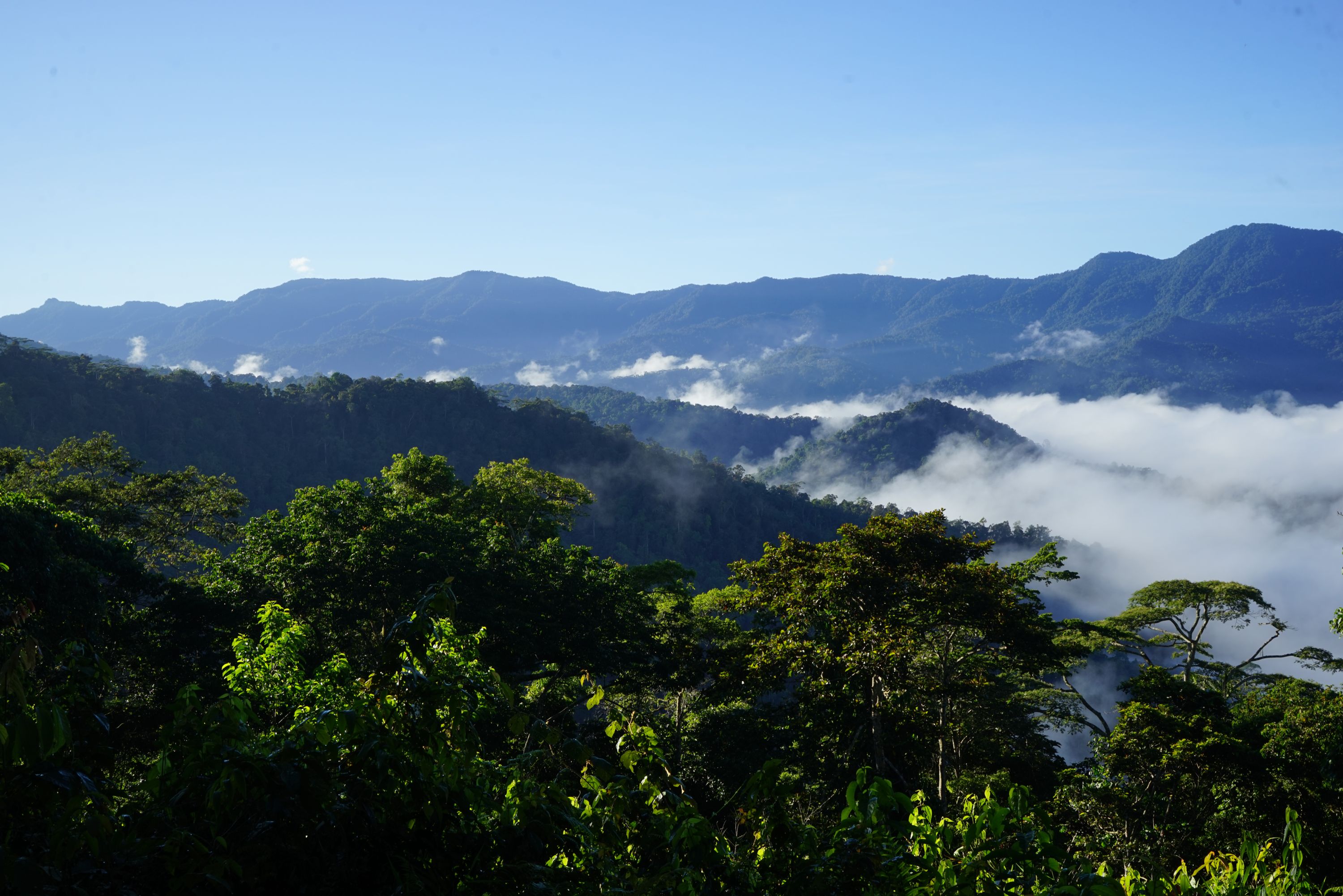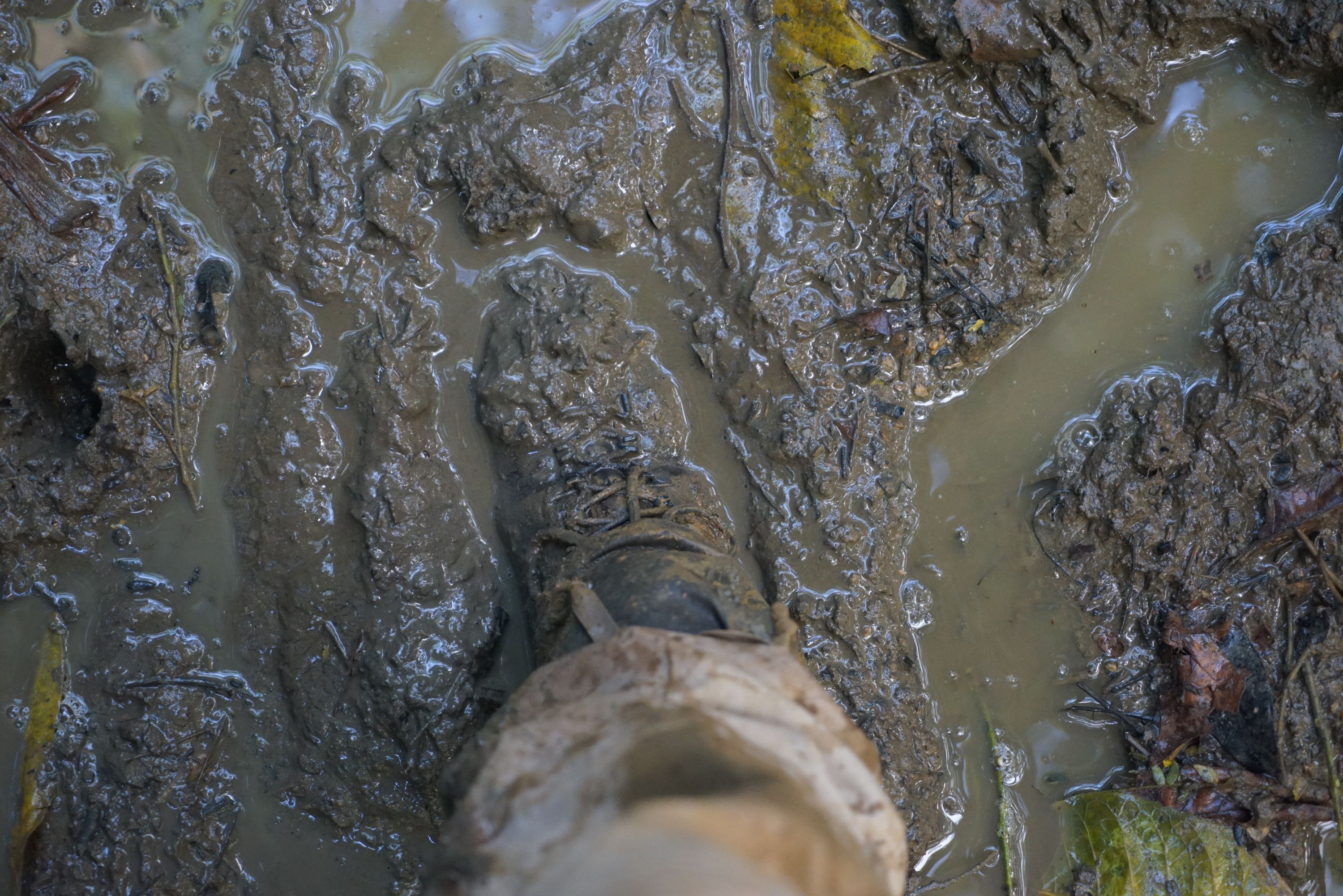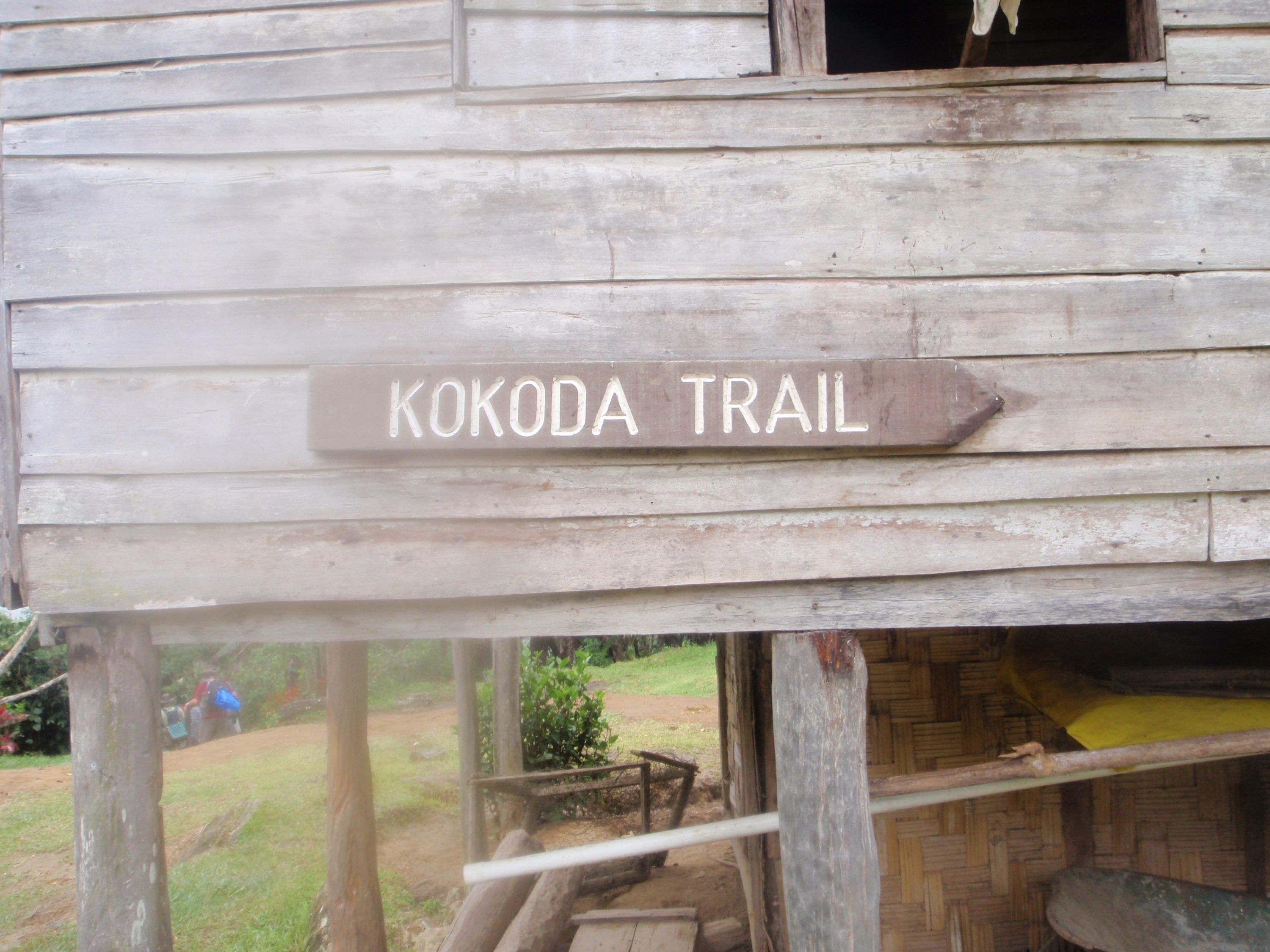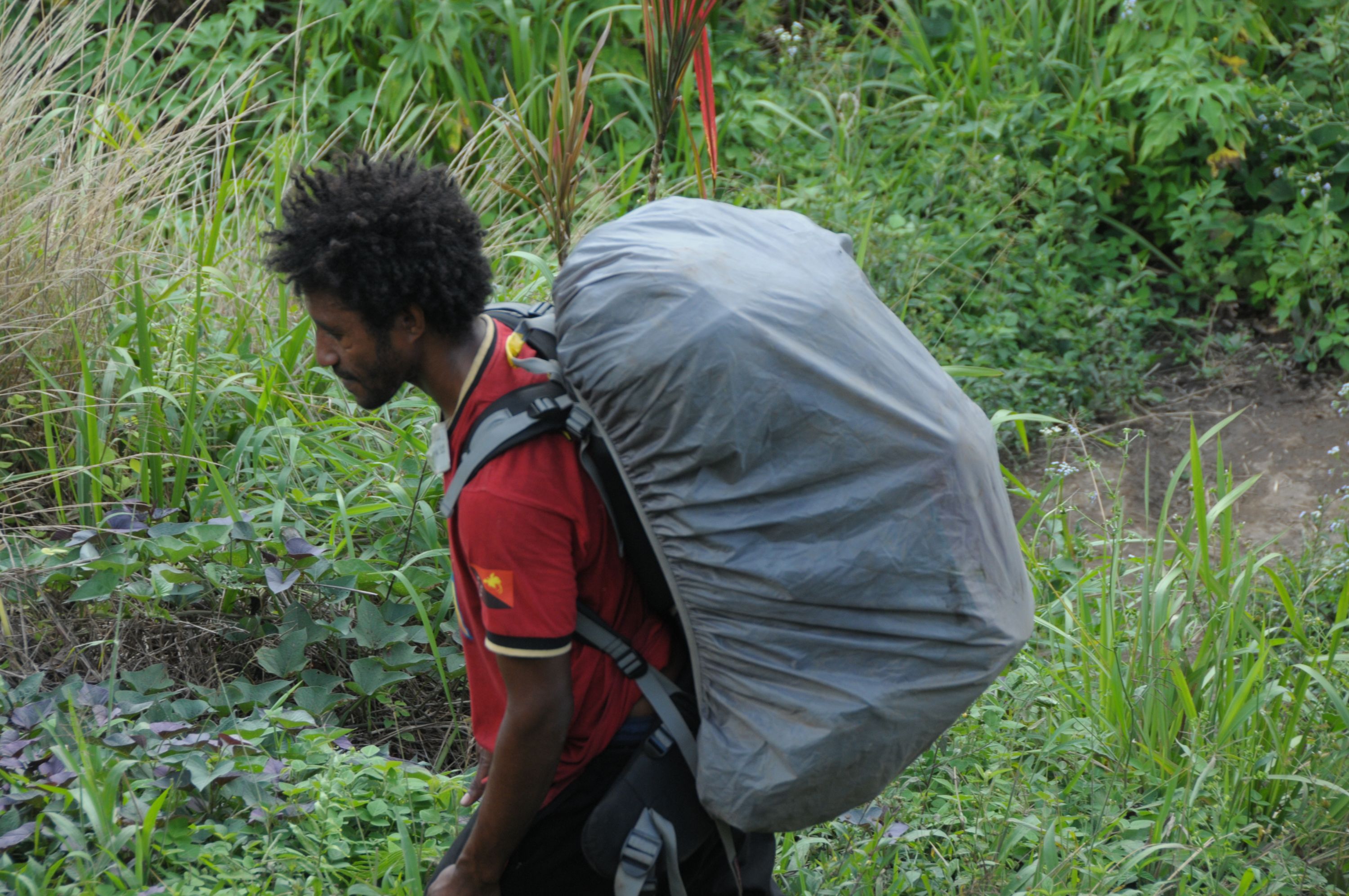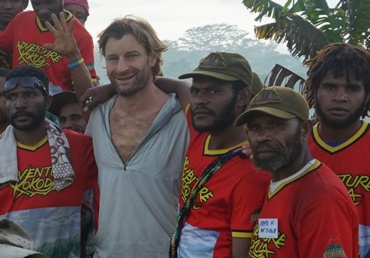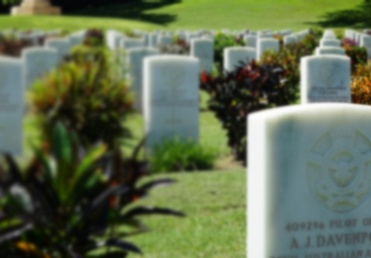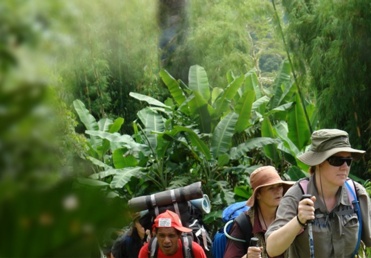According to PNG Investment Promotion Authority (IPA) records Adventure Kokoda is the only Australian company to fully comply with the provisions of their Act for operating a business in PNG since the Kokoda Track Authority was established in 2004.
We are registered as an approved 'Foreign Enterprise' in PNG and we contract Adventure Kokoda PNG Limited, a registered PNG company, to provide the personnel and logistic support for our treks.
- We pioneered Kokoda Kokoda pilgrimage tourism in 1992 and since then we have led more trekkers safely across the trail than any other tour company.
- We are the only tour company to specialise on pilgrimage tourism on the Kokoda Trail - we do not trek to any other location - Kokoda is all we do.
- We have the most professional and experienced trek leaders - our team has 160 years combined military experience - we have led more than 650 expeditions safely across the trail over the past 30 years.
- We are the only trek operator to have established a Not-for-Profit company, Network Kokoda, and now provide more philanthropic support to traditional subsistence villagers across the trail than all other tour companies combined.
- We have a permanent rear headquarters in Port Moresby and maintain a 24/7 VHF radio watch to monitor daily progress of our trek groups and to react immediately in the event of any emergency.
- We are the only trekking company to provide for the welfare of our PNG guides and carriers by issuing them with sleeping bags, sleeping mats, full trek uniforms and the same ration scale as our trekkers.
- We are the only trekking company that limits the maximum backpack weight for our guides and carriers to 18 kg which was the maximum weight allowed during the Kokoda campaign in 1942. This means we have to employ more porters which adds to the cultural value of our pilgrimages.
Adventure Kokoda was rated as the best Kokoda trekking company on the Kokoda Trail in 2015, 2016, 2017, 2018, 2019, 2020, 2021, 2022 and again in 2023.
What is the Travellers' Choice?
Travellers' Choice (formerley Certificate of Excellence) recognises businesses that earn consistently great reviews.
We are very proud to be rated number one on Tripadvisor for the 9th successive year which shows our commitment to providing an outstanding experience to all our trekkers, ensuring they have an enjoyable, challenging and informative historical and cultural experience among friends.
View Tripadvisor reviews here.
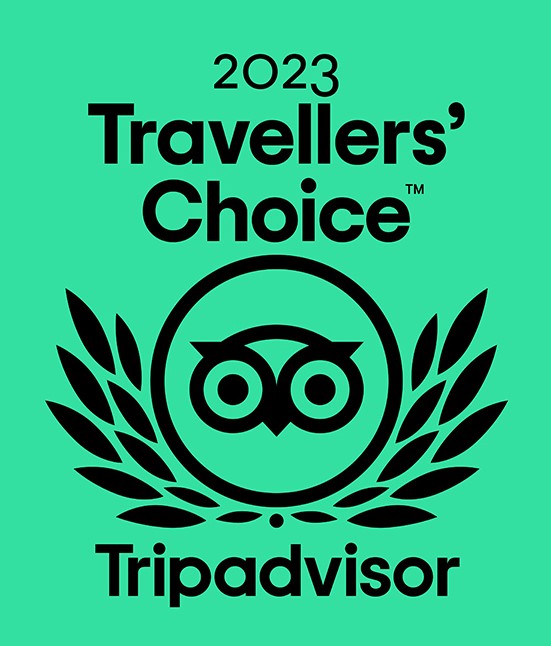
Tripadvisor is the only independent and reliable forum for trekkers to post their comments in regard to their trek. You should therefore be wary of companies who don't rate much of a mention because trekkers obviously did not rate their experience with them.
The following post illustrates the difficulties you could face if you do not conduct proper research on the company you choose:
'I do not recommend booking Kokoda with INTREPID
'Trek is an amazing experience but not with Intrepid. I was doing it in July.
Organization of the trip was terrible but price really high (2600 -2800 pounds).
'Our guide .....oh it was impossible to understand him. First I thought - it's because of my English ( it's not my first language ) but soon I realized - nobody can't understand him. So from my point of you - the historical part didn't exist! I am not Australian i just had a tiny knowledge about the battle. Hoped I will learn more during the trip - unfortunately...nothing! Need to read about it at home.
'Another thing: it's a challenging trek. You ( or maybe just me) expect that at the end of the day person who look after the group will ask: are you ok? how are you feeling/doing?
'Nothing.Two guys were ill during the trip. The only thing they did - stopped trek when they were throwing out. People from the group cared after each other - sharing first kit, happy to help each other
'Food - disaster. For breakfast salty crackers with jam of honey, corn flakes with powder milk.....every day. Never ate it). Dinner and lunch - boiled pasta/ noodles/ spaghetti plus breakfast set. 18 meals - PASTA. Sorry...twice we had rice. No fruits - if you want to, need to get for yourself. Didn't expect amazing meals, understand that you can't get products on the way....but other groups had really great food - so if you want to, you can organise it much better than ours.
My porter was really bad too. Here I need to admit that I was unlucky because it was just few like him! He rarely was behind me - didn't have any help/security. When he was on his place .... I don't know who saved more other bottom. He landed on my back quite few times!
'Also when he finally arrived on place where we were staying ( people from the group were enjoying water, I was waiting for my porter) , very often was leaving my backpack somewhere....I had to find it.
'Finally .... I had a feeling that they just going with us, we weren't a group 9 I mean a crew and people from the group). The didn't stay with us after walking, didn't' talk to us etc.
'Anyway: I think that the trek is great and Kokoda can be an amazing experience.....but think twice before you'll book it with Intrepid.
Ask annapietrasz about Kokoda Track
When planning to complete the journey along the Kokoda Trail the most common question we are asked is whether it is safe.
The Kokoda Trail is a rugged and remote 138 kilometre jungle path across some of the most hazardous terrain most people will ever traverse. The trail itself can be quite dangerous with steep jungle clad mountains and swift-flowing rivers/creeks strewn with large rocky boulders. Much of the area is inaccessible by helicopter. Rivers and creeks can rise rapidly after heavy rain in the catchment area and can be dangerous to cross.
In order to minimise risk it is therefore essential to trek with a reputable Kokoda tour company.
If an emergency occurs it is vital that your trek leader is experienced and capable of handling the situation. It is essential that they are equipped with a satellite phone and VHF radio with a reliable back-to-base line of communication that maintains a 24/7 listening watch in Port Moresby.
As a trekker you need to ensure you are protected with a personal Travel Insurance policy to cover your medical evacuation and treatment costs should you become sick or suffer a personal injury. It is your responsibility to ensure the insurer you select will approve immediate helicopter evacuation from the Kokoda Trail if the call is made by your trek leader.
You also need to ensure the operator you choose to trek with has suitable Public Liability Insurance protection. If they don't have it don't even think about trekking with them.
You should not confuse Personal Travel Insurance (your responsibility) with Public Liability Insurance (your tour company's responsibility).
Adventure Kokoda only use trek guides and personal carriers from the Koiari and Orokaiva people who live along the trail. These are descendents of the famous 'fuzzy-wuzzy angels' who look after our trekkers just as their fathers looked after our diggers.
Our trek leaders are trained emergency evacuation procedures and are qualified in remote area first aid. They also carry satellite phones and VHF radios with direct links to our operational HQ in Port Moresby which is monitored 24/7 during our treks.
Adventure Kokoda is one of the few trekking companies to complete a comprehensive risk assessment of the trek and has been able to secure public liability insurance protection for trekkers as a result. The policy has a limit of A$10 million per claim.
Our good relationship formed over the past 30 years with our guides, carriers and the people living along the trail ensures our trekkers have a safe passage.
The Kokoda Track Authority (KTA) is a PNG Government 'Special Purpose' body administered by the Minister for Provincial and Local Level Government Affairs.
Unfortunately the employment of officials without any commercial management qualifications or experience has led to poor governance, corruption, and management dysfunction.
This is evident in the fact that they have not published an annual financial report for more than a decade and are now an unaccountable law unto themselves. Money collected for trek permits now circulates among corrupt officials in Port Moresby.
They also issue Kokoda tour companies who do not comply with the PNG Investment Promotion Authority (IPA) Act to obtain additional cash even though they know they are operating illegally.
They also turn a blind eye to tour operators who do not have valid Public Liability Insurance policies.
Trekkers should therefore be aware of the rule of 'Caveat Emptor' i.e., 'Let the Buyer Beware' when selecting a Kokoda tour company to lead them across the Kokoda Trail.
Adventure Kokoda use a charter aircraft to fly directly into and out of Kokoda village. We do not fly in/out of Popondetta.
Adventure Kokoda is not a member of the KTOA.
We declined the invitation to join the Kokoda Tour Operators Association (KTOA) which was established to protect the interests of Australian trek operators at the expense of PNG guides and carriers.
In 2017 they prevented a PNG motion calling for backpack weights to be reduced; employment conditions to be improved; and for guides and carriers they employ to be provided with sleeping bags, mats and a uniform; from being tabled.
Overloading of local carriers is a common practice by many Australian tour operators as a means of keeping their costs down. We do not believe that PNG guides and carriers should have to sleep on wet ground because they are not provided with such essential items of comfort.
The exploitation of guides and carriers practiced by KTOA members would not be tolerated in Australia and it should not be tolerated in PNG.
They treat PNG laws with contempt by failing to ensure their members register as a ‘Foreign Enterprise’ in accordance with their Investment Promotion Authority Act. As a result they operate illegally within PNG.
They also treat their trekkers with contempt by failing to advise them that their travel insurance policies may be voided if they trek with an illegal operator.
According to the IPA PNG (Investment Promotion Authority) website, Adventure Kokoda is one of only two Australian trekking companies who operate legally in PNG as a registered ‘Foreign Enterprise’ with the IPA. Adventure Kokoda also provide for:
- a maximum allowable weight of 18 kg which was the maximum weight allowed for 'fuzzy-quzzy angles' during the Kokoda campaign; (which means we have to engage more carriers);
- a full trek uniform - cap, shirt, shorts
- a sleeping bag;
- a sleeping mat;
- wholesome meals - equivalent to what we provide for our trekkers;
- a gratuity equivalent to one day's pay at the end of each trek; and
- a 'Walk-Home Allowance' of PNGK250 to allow our guides and carriers to walk back to their villages after each trek.
In addition to this we engage a PNG medic with a full medical kit to look after their specific medical needs across the trail.
If our guides or carriers suffer serious illness or injury during their trek we arrange for them to be evacuated by helicopter and treated at the Port Moresby Private Hospital - they receive the same care, attention and treatment as our trekkers.
The difference is the dialogue we have within the group during and after our presentations.
We have a combined total of 160 years professional military experience - our trek leaders have served in Papua New Guinea, Vietnam, Afghanistan and Iraq. They are able to relate discuss the ground and conditions to the strategic situation of the time and the various principles that apply to the different phases of war.
They have also experienced the emotional aspects of perhaps never seeing their families again - and they understand mateship because they have experienced it under combat condtions.
As a result they are able to provide informed debate surrounding some of the decisions made by commanders in the heat of the campaign and relate many of the personal stories of veterans they have previously served with.
This is not stuff you can learn from a book - it comes from personal experience in the army and makes for interesting and lively dialogue.
According to Major General Gordon Maitland, a distinguished military historian there are three types of military historians:
- Journalist historians, who show little respect for the facts in order to tell a good story
- Academic historians, who have the time and facilities to unearth new and valuable information, but mainly at the political and strategic levels
- Soldier historians, who are the only ones one can trust at the tactical level, for they have been taught to understand the key factor – ground'.
Adventure Kokoda engages 'soldier historians'! who meet Major General Maitland's criteria of understanding key tactical factors and are able to incorporate them into interesting and entertaining battlefield presentations.
Some claim that 'there are many tracks to the Kokoda Trail' - this is code for them using eco-shortcuts that allows them to cut costs by getting groups across in shorter periods of time.
Much of the wartime trail is much as it was in 1942 because fewer trekkers use it today.
Those interested in the authentic history of the Kokoda campaign trek via the original wartime trail over the Kagi Gap to Lake Myola. Those who wish to explore the mystic charm of the Lake Myola area should allow for an additional day otherwise all they will get is a quick glance at it.
The map below shows a popular eco-shortcut via Naduri village - neither the track itself nor the village existed during the Kokoda campaign.
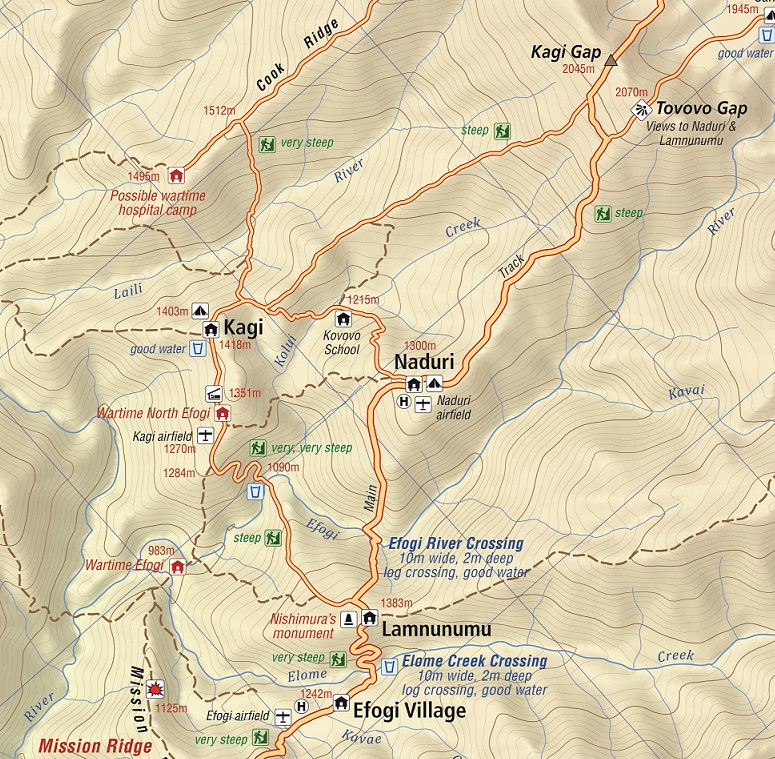
NO! PNG trek guides are masters of their environment however their knowledge of the Kokoda campaign and their presentation skills do not rate at this stage of their development.
Adventure Kokoda organises PNG led Kokoda treks for groups who are looking for a physical challenge in preference to learning about the wartime history of the Kokoda campaign.
Whilst our PNG leaders have been well trained in expedition leadership and are the best in the business they do not have the knowledge of the military history of the Kokoda campaign or the presentation skills to conduct battlesite briefings.
Trekkers meeting PNG support crew on arrival at Kokoda airfield
According to reports we receive we are the only operator to provide real fresh meals along the trail.
We have obviously trained our PNG guides to prepare, cook and serve meals and this has proved to be a most attractive option to trekkers. Life is too short for ration packs!
Our menu includes breakfast cereals, tropical fruits, biscuits, jam-vegemite-nutella-peanut butter-cheese, pasta, noodles, rice, meat and vegetables with potato, tea/coffee/hot chocolate etc as standard fare.
We are able to provide for special diets as required.
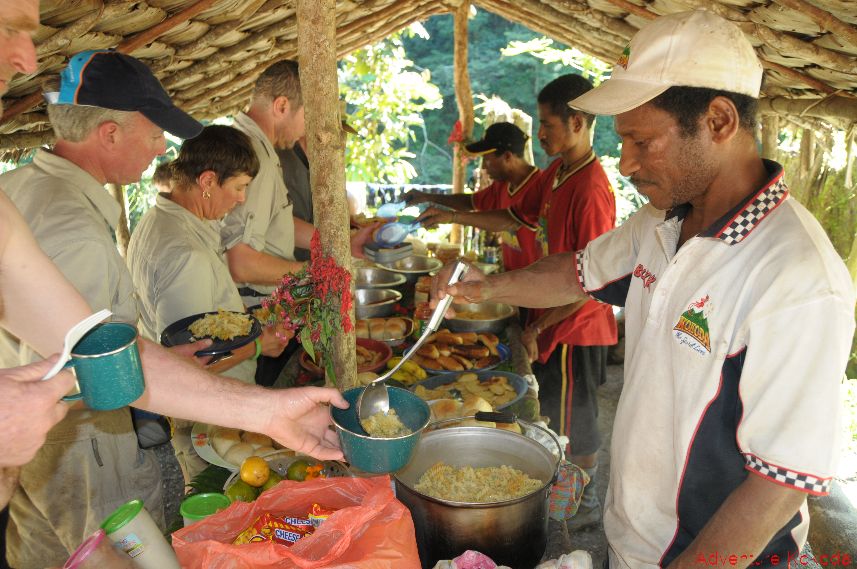
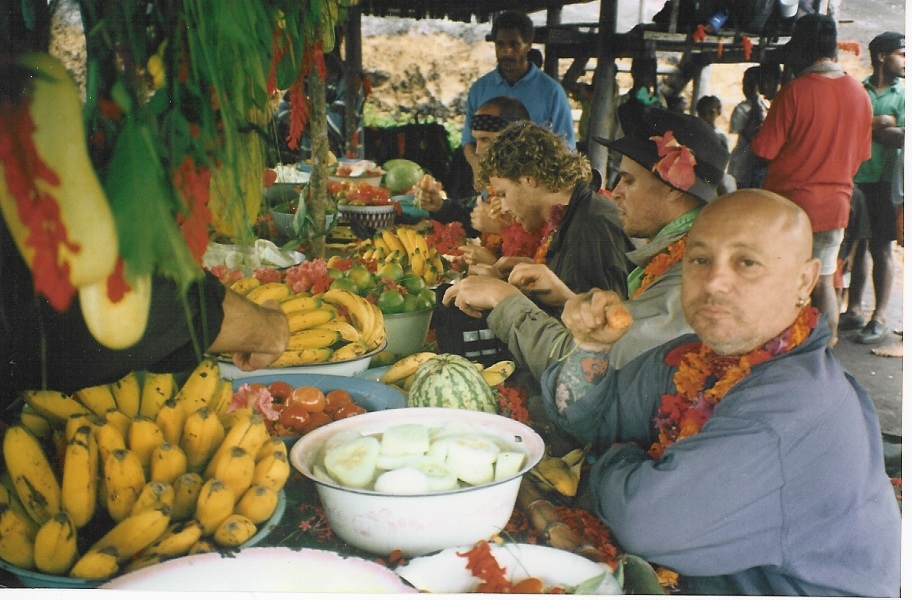
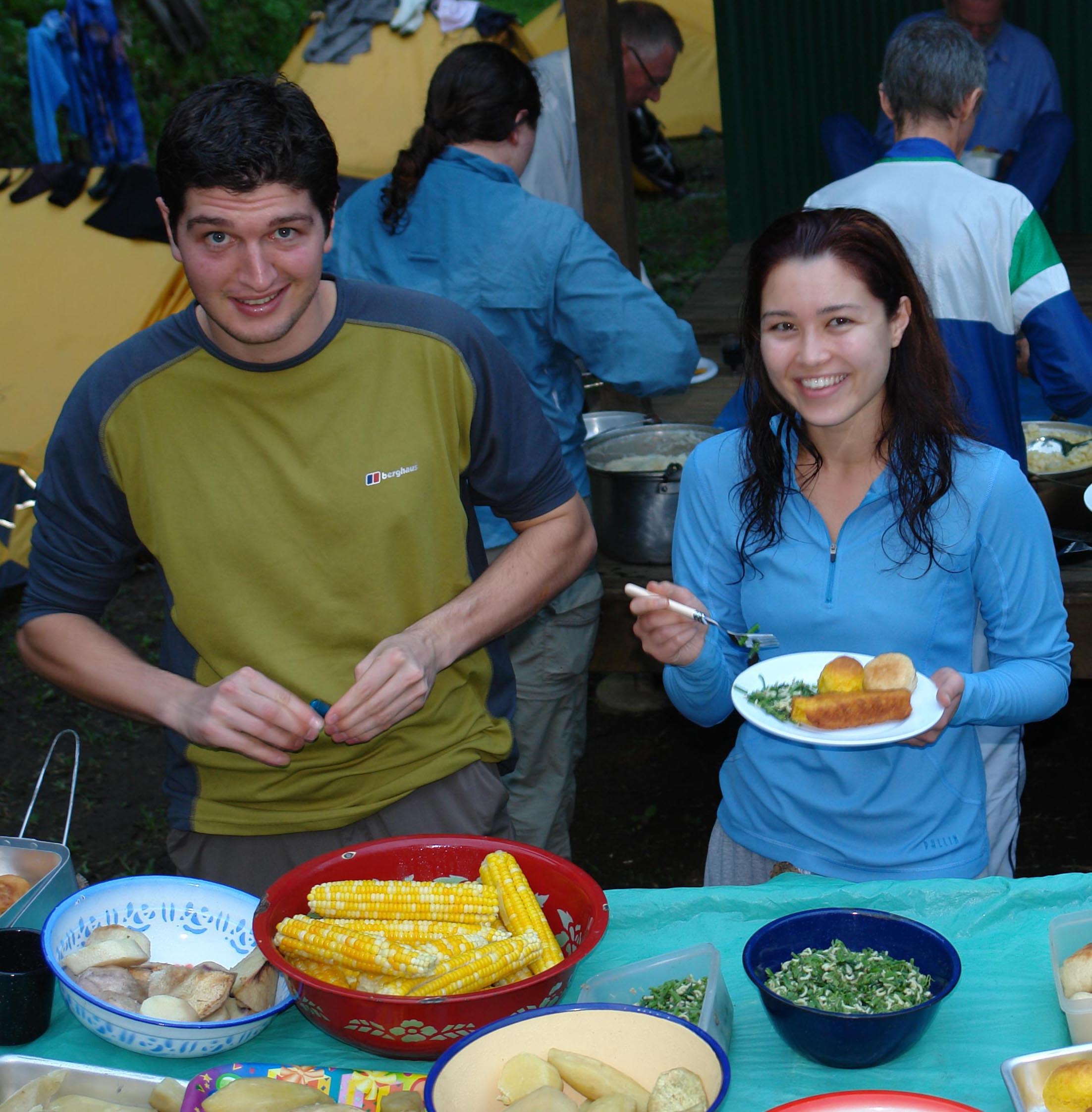

Most of the emergency evacuations from the Kokoda Trail are caused by gastro problems which cause severe vomiting and diarrhoea leading to dehydration - the most likely source of this condition is contaminated food cooked and served by villagers. This is why we carry ALL of our food with our trek groups.
We provide a personal tent for each trekker.
Our tents are fully screened and provide protection from malarial mosquitos, leeches, cockroaches, mice and other creepy-crawlies.
For personal protection, privacy, comfort and convenience our guides will set up your tent each night - pack it up the next morning - carry if to the next campsite and have it ready for you again.

Guesthouses in villages along the trail are built from local bush materials - they offer basic shelter from the elements but don't have any privacy or screened protection from malarial mosquitos, leeches, cockroaches, rats and mice, etc!
The increase in trekker numbers over recent years has led to an increase in infestation in villages guesthouses.
If you have to sleep in these because your trek operator does not provide mosquito proof tents make sure you sleep with your mouth closed and that you don't mind the pitter-patter of little mice running across your forehead - if you are a bit sensitive in this area the only guarantee you have against the local infestation is to sleep in an insect proof tent.
There is also no protection from the inevitable snorer in guesthouses where everybody is required to bunk together.
The VHF radio net along the Kokoda Trail has improved however there is only one channel and it is sometimes difficult to break into the chatter. The system does not have a base station with a 24/7 listening watch which could be critical in an emergency.
Adventure Kokoda are equipped with satellite phones for use in emergencies.
Operators who do not have a satellite phone with an active account fall into the 'dodgy' category - unfortunately they exist and the only protection trekkers have is the old caveat emptor of 'Let the buyer beware'.
Trekking without a satellite phone in your group is classified as 'unnecessary risk'.
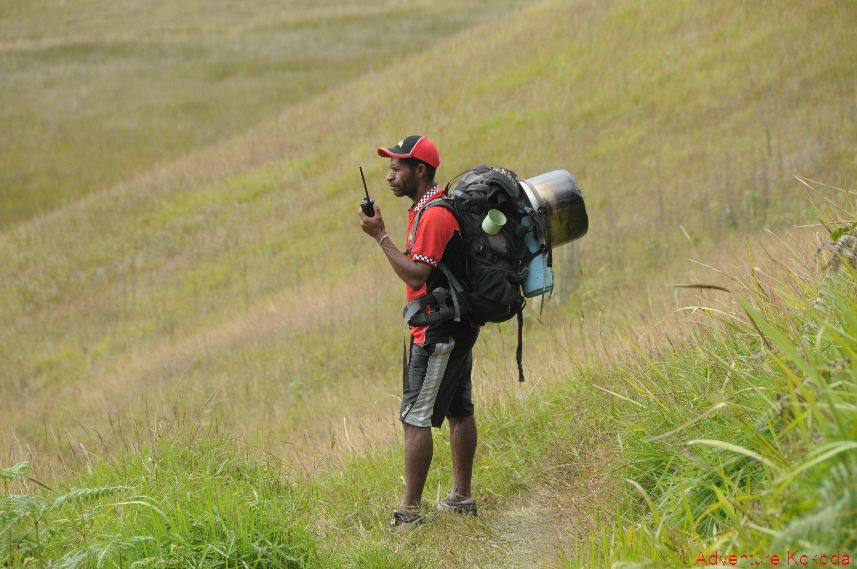
Most evacuations from the trail are due to gastro-intestinal problems which cause severe vomiting, diarrhoea and chronic dehydration.
Unhygienic handling and preparation of food is the most common cause of the gastro problems which lead to medical evacuations. Most evacuations result from trekkers who eat vegetables prepared by local villagers.
To avoid this we carry all of our own food which we purchase from supermarkets in Port Moresby.
We actively discourage our trekkers from eating food prepared in villages as we cannot guarantee the standard of the local hygiene.
Some operators rely on village food to save costs - If the operator you choose includes ‘village food’ as part of their catering plan it might save them money but it could lead to your evacuation from the trail.
Yes he does.
The VHF radio net along the Kokoda Trail has improved however there is only one channel and it is sometimes difficult to break into the chatter. The system does not have a base station with a 24/7 listening watch which could be critical in an emergency.
Professional operators are equipped with satellite phones for use in emergencies.


Trek Operators who do not have a satellite phone with an active account fall into the 'dodgy' category - unfortunately they exist and the only protection trekkers have is the old caveat emptor of 'Let the buyer beware'.
Adventure Kokoda have a permanent rear headquarters in Port Moresby and maintain a 24/7 VHF radio watch to monitor daily progress of our trek groups and to react immediately in the event of any emergency.
Our trek leaders are equipped with a satellite phone and two VHF radios with moonraker antennaes.
You should not have any worries if you are travelling with a reputable trek operator who utilizes a secure hotel and pre-arranged transport in Port Moresby.
Our trek leaders meet you on arrival at the Port Moresby airport; accompany you to your accommodation; provide detailed pre-trek briefings and equipment checks; lead you safely across the trail; and escort you back to the Port Moresby airport at the end of your trek. We are with you the entire time you are in PNG.
Our relationships with local villagers along the trail is based on mutual respect because of the employment we provide to their local Koiari and Orokaiva guides; the money we have invested into their local campsites; and the community benefits we provide through our not-for-profit company, Network Kokoda.
If you lead a sedentary lifestyle you will need a minimum of three months physical training and preparation.
You should start with a complete medical check-up then consult with your local gymnasium to prepare a personal training program aimed at increasing your aerobic fitness level. As a guide we recommend you start with minimum of 45 minutes of aerobic activity (walking, power-walking, jogging, cycling, tennis, etc) at least four times per week.
You should aim to increase your work rate by ten percent each week after that.
Your training needs to include extensive walking, preferably in a hilly-area, carrying a weighted pack. In the last month of your training you need to be capable of walking at least 10 km daily, carrying 3 to 5 kg more than the weight you expect to carry on your trek.
Think of your training as a deposit in your fitness account – everything you do between now and the trek will pay a dividend on the trail. If you haven’t made enough ‘deposits’ into your fitness account you will have to go into ‘debt’ on the trail – and debt of any kind is always painful!
You can’t cheat yourself on Kokoda – if you have done the work you will complete it OK – if you haven’t you will be a candidate for an emergency evacuation!
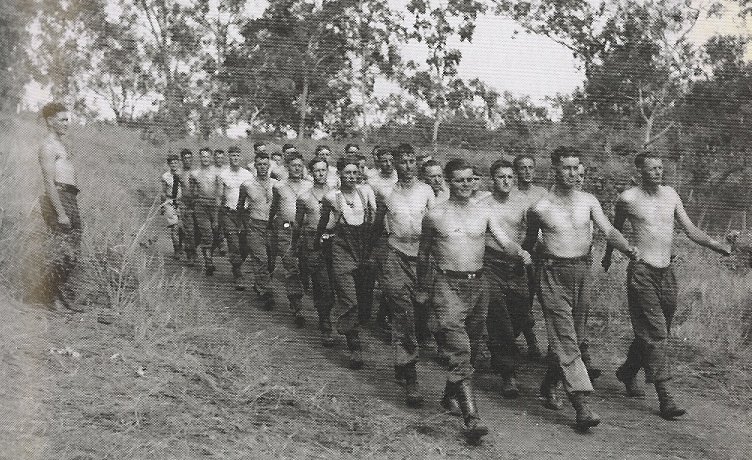
39th Battalion preparing for the Kokoda campaign on the Sogeri plateau in 1942
The trek across Kokoda is the toughest physical challenge most people will encounter.
The decision as to whether to carry your own backpack is important because it can mean the difference between enjoying the experience or suffering and having to withdraw from the trek.
Some trekkers in the past have stubbornly refused to engage a personal carrier because they want to do it like ‘the diggers did it!’
If this is your rationale we suggest you purchase a pair of hobnail leather boots, carry a canvas backpack with webbing pouches; travel with a half-blanket which you will willingly share with up to six other trekkers; borrow a rifle and ammunition; sleep outside your tent and leave your underwear and toiletries at the hotel in Port Moresby!
For those who are young, confident and physically fit it will not be a problem. But for those who lead a sedentary lifestyle; who might be carrying an extra kilo or two; who might be harbouring some self-doubt about their ability to burden themselves with extra weight; or who do not maintain a daily regime of physical training it will be a struggle – you will find the track does not make concessions to anybody! It is therefore important that you do an honest assessment of your physical capabilities.
If you are physically fit, are an experienced extreme conditions trekker, and have prepared yourself with a strenuous training program then you should be able to carry your own pack. On the other hand if you have any doubts about your ability then you should consider engaging a personal carrier for yourself or sharing one with a mate.
If you engage your own Personal Carrier prior to your trek we provide them with a trek uniform and purchase additional food and camping gear for them before we leave Port Moresby – there is none available along the track.
The cost of a Personal Carrier is between $660 - $790 per person, depending on the trek type/duration. The cost will be displayed when completing the online Booking Form.
If you decide to engage one after you arrive an additional $150 surcharge will apply to cover the additional costs we have to incur as short notice.
From time to time we have trekkers who realise they cannot carry their backpack after the second or third day - we then have to try and recruit additional carriers along the trail. This is a difficult exercise in the middle of the Owen Stanley Ranges as we are not able to arrange for additional food, uniforms or camping gear for the additional carriers. It’s also unfair as our PNG trek guides and carriers, who already work hard under extreme conditions, don’t appreciate having the size of their meals reduced whenever we have to engage additional personal carriers during the trek.
A Personal Carrier will carry your backpack and act as your ‘trek caddy’ for the duration of your trek – he will often catch you before you fall; will assist you over the most difficult sections of the trail; assist you with packing up and setting up and proudly introduce you to his family in his village.
Yes - Adventure Kokoda treks include International economy class return ticket to Port Moresby (for bookings ex-Cairns, Brisbane or Sydney), all accommodation, meals, transport, trek fees etc. The price also includes the provision of a roomy mosquito-proof tent.
If you engage a Personal Carrier, a backpack (75 Litre) is included; otherwise you can hire our backpack for $50.
You will find that some trek operators offer much cheaper treks - you need to check the small print to find out if there are any 'hidden extras' - which is often the case. If you have to pay for additional items or 'hidden extras' such as accommodation and meals in Port Moresby, airfares to/from Kokoda, personal camping equipment etc, then any saving on price can prove to be a false economy. Make sure you check the fine print with the tour operator you choose.
The following list is an indicative guide of the cost of 'hidden extras' to budget for if they are not included in the price of the trek operator you choose:
- International return airfare - e.g. Sydney - Port Moresby - $1,200
- Two nights accommodation in Port Moresby - $600
- Meals in Port Moresby - $150
- Backpack - $250 - $350
- Tent - $180 - $300

If your trek operator does not have a Public Liability Insurance policy then you will need to arrange for your own cover. This is an essential requirement but will be a difficult and expensive exercise to arrange on an individual basis.
Most trekkers bring some of their favourite snacks to nibble on between meals during the day. These include biscuits, chocolate bars, jelly beans, etc.
Try and avoid too many dried fruit and nut mixes as they are heavy and can be a bit hard on the digestive system.
Your daily snack pack should not exceed 150 grams.
The average size of our groups in 2017 was 12 trekkers - groups are larger during school holiday periods.
The best time to trek Kokoda is during the 'dry' season from April through to October. Trekkers can still trek comfortably during the wetter periods provided they are equipped with proper gear.
The temperature on the Kokoda Trail is a constant 29 - 30 degrees Celsius during the day.
Humidity is very high however trekkers are protected from direct sunlight most of the time because they are under the jungle canopy.
Over the higher part of the Owen Stanley's the temperature can drop to 1 - 2 degrees Celsius during the night.
And it can rain in the 'dry' season and be quite dry in the 'wet' season - so always be prepared for rain!
If you trek from Owers Corner to Kokoda via the wartime trail you follow the footsteps of our young Diggers as they advanced across the Owen Stanley Ranges to meet the Japanese 144th South Sea Islands Regiment.
If you trek from Kokoda to Owers Corner via the wartime trail you follow the route of the Australian withdrawal in the face of overwhelming Japanese odds back to the last line of defence on Imita Ridge.
There is no 'best' way to trek Kokoda. The experience is just as powerful in either direction (that is the opinion of Charlie Lynn who has trekked 62 times from Kokoda to Owers Corner and 38 times from Owers Corner to Kokoda).
The difference is the experience and knowledge of your trek leader. If your trek leader has a detailed understanding of the history of the Kokoda campaign you will get maximum value from your trek. If they don't you will be disappointed and will soon realise the savings you made from going 'cheap' are a false economy in more ways than one.
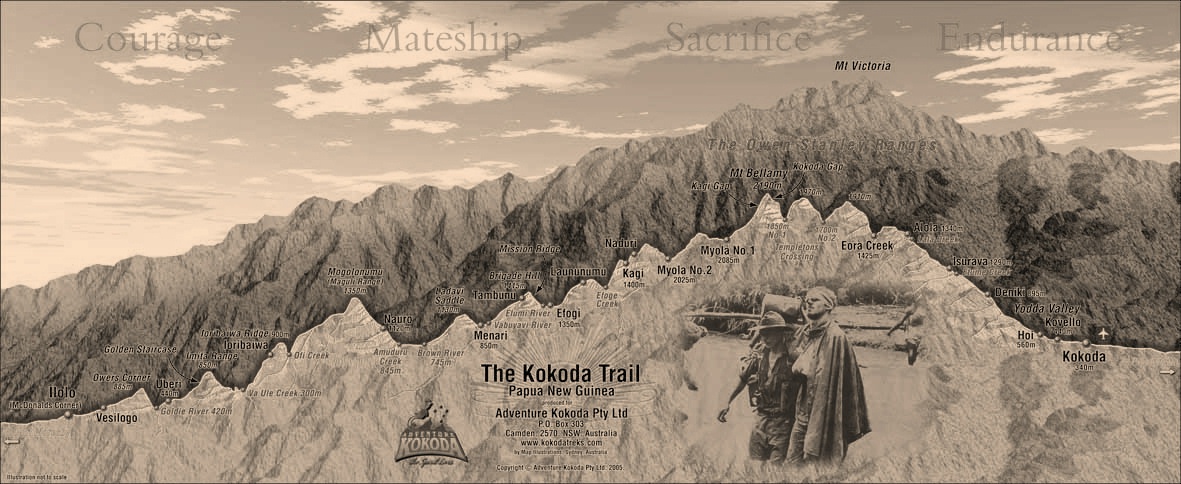
The distance across the Kokoda Trail between Owers Corner and Kokoda as the crow flies is 96 km. However if you were to strap a Garmin 64st GPS to the leg of the crow and get him to trek it via the wartime trail the actual distance is 143.7 km - you would also climb a total of 6748 metres.
The situation is assessed by the trek leader. If it is an emergency the trek leader will contact Adventure Kokoda base in Port Moresby via satellite phone or VHF Radio. Adventure Kokoda will initiate evacuation by contacting the helicopter company and the travel insurance provider.
The patient will be met by Adventure Kokoda staff on arrival at Port Moresby and transported to the Pacific International Hospital for assessment/treatment.
The villages along the Trail are Seventh Day Adventists. They are vegetarian, don't drink alcohol and strictly observe their Sabbath between 4.00 PM on Friday and 4.00 PM on Saturday each week. They also have two church services in each village each day - one at 6.00 AM and one at 6.00 PM. Trekkers are asked to respect these religious protocols.
Each village has a designated area for trekkers to camp. They also have dedicated toilets for trekkers. Your guides will identify these areas for you.
There are also separate bathing areas for males and females. To avoid embarrassment you should ask your guides to show you where they are. Ladies should wear a sarong to their bathing area.
The Kokoda Trail - Official Naming Rights
A paper by Major Charlie Lynn OL
13 September 2011
-
Ownership of the naming rights for the Kokoda Trail is a keenly contested point of debate in Australia.
-
Do they belong to the nation which retains sovereign ownership of the land between Owers Corner and Kokoda i.e. Papua New Guinea?
-
Or to the Papuan Infantry Battalion and the 10 Australian Battalions who were awarded the official battle honour ‘Kokoda Trail’?
-
Or to the custodians of political correctness in the Australian Government who dislike the name ‘trail’ because it's not Australian?
Background
Over the past decade almost 40,000 Australians have trekked across the Kokoda Trail in Papua New Guinea. Most trekkers are motivated by the wartime history of the Kokoda campaign and this has led to a range of books and television stories on the subject. It has also led to some extensive debate about the official name of the trail.
Contemporary debate over the name evolved after former Australian Prime Minister Paul Keating kissed the ground at Kokoda on the 50th anniversary of the campaign in April 1992. This was accompanied by much ‘talkback’ noise about ‘trail’ being an American term and ‘track’ being the language of the Australian bush (ignoring the fact that our bush is criss-crossed with fire-trails). This suited Keating’s agenda for an Australian republic at the time.
The debate suited those in the Australian commentariat who harboured a strong anti-American bias over their engagement in Iraq around the time of the 60th anniversary of the Kokoda campaign. As most of the commentariat had never served in the regular armed forces they could be excused for not appreciating the esprit de corps associated with a battle honour. This, however, does not excuse them for ambushing a name that doesn’t reflect their political bias.
‘Kokoda Track’ has since emerged as the politically correct term in Australia in spite of the fact that the battle honour ‘Kokoda Trail’ was awarded to the Papuan Infantry Battalion and the 10 Australian battalions who fought in the Kokoda campaign. It is also in defiance of the Papua New Guinea government who gazetted the name ‘Kokoda Trail’ in 1972.
Australian Battles Nomenclature Committee
Immediately after the war against Japan the Australian Government established a Battles Nomenclature Committee to define the battles of the Pacific.
According to research conducted by Peter Provis[1] at the Australian War Memorial the committee conferred with official historians ‘including Dudley McCarthy. He reported:
‘The Battles Nomenclature Committee used the ‘Battle of the Owen Stanley’s’ in a provisional list of battles, actions and engagements of the war in the South West Pacific Area produced in May 1947. For the preparation of the final list, Warren Perry, Assistant Director, wrote that the geographic boundaries required further work with ‘very detailed research into the original day to day records of the various campaigns’. The Committee may have deemed that the ‘Battle of the Owen Stanley’s covered a too broader area to describe the Kokoda campaign, suggesting that fighting occurred across the entire range. In June 1949 the provisional list of battles used ‘Kokoda Trail’.
‘The final report, completed and published in 1958, listed the ‘Kokoda Trail’ as the name of the battle, which included the actions Isurava, Ioribaiwa, Eora Creek-Templeton’s Crossing 11 and Oivi-Gorari as well as the following engagements: Kokoda-Deniki, Eora Creek-Templeton’s Crossing 1 and Efogi-Menari.’
Kokoda Trail Battle Honour
The Battle Honour ‘Kokoda Trail’ has been emblazoned on the colours of the Papuan Infantry Battalion and the 10 Australian battalions who fought in the Kokoda campaign for the past 57 years.
 Battle Honours or colours symbolise the spirit of a regiment for they carry the names of battles that commemorate the gallant deeds performed from the time it was raised. This association of Colours with heroic deeds means they are regarded with veneration. In a sense, they are the epitome of the history of the regiment[2].
Battle Honours or colours symbolise the spirit of a regiment for they carry the names of battles that commemorate the gallant deeds performed from the time it was raised. This association of Colours with heroic deeds means they are regarded with veneration. In a sense, they are the epitome of the history of the regiment[2].
|
39th Battalion Regimental Flag with Battle Honours |
The full history of a regiment is contained in written records, but these are not portable in a convenient form. On the other hand the Colours, emblazoned with distinction for long and honourable service, are something in the nature of a silken history, the sight of which creates a feeling of pride in soldiers and ex-soldiers.[3]
This is a significance that commentators and bureaucrats who have never worn the uniform will never fully comprehend.
The Australian War Memorial (AWM)
The Australian War Memorial is the official custodian of our military history. The Memorial has honoured the battle honour of the 10 Australian battalions by naming the Second World War Galleries ‘Kokoda Trail’.
According to the Memorial’s website the ‘Kokoda Trail Campaign’ was fought over ‘a path that linked Owers Corner, approximately 40 km north-east of Port Moresby, and the small village of Wairopi, on the northern side of the Owen Stanley mountain range. From Wairopi, a crossing point on the Kumusi River, the Trail was connected to the settlements of Buna, Gona and Sanananda on the north coast. Its name was derived from the village of Kokoda that stood on the southern side of the main range and was the site of the only airfield between Port Moresby and the north coast[4].
For trekkers the Kokoda Trail lies between Owers Corner and Kokoda.
In response to the debate over the official name of the Kokoda Trail, Australian War Memorial historian, Garth Pratten surveyed the Memorial’s collection of published histories of all the major units involved in the Owen Stanley and Beachhead campaigns in 1997. Pratten found that of the 28 published histories 19 used ‘Kokoda Trail and 9 used ‘Kokoda Track’ - a majority of 2:1 in favour of ‘Trail’.[5]
Pratten noted that ‘these histories were usually written, edited, or published by men who had participated in the campaign’.[6]
It is ironic that 75 years on we now have city-based academics, commentators and bureaucrats who have never worn the uniform deem themselves to be more of an authority on the issue than those who saw active service in the Kokoda campaign.
The Returned Services League of Australia (RSL)
The RSL is the largest ex-service representative body in Australia. They accepted ‘Kokoda Trail’ as the official title after the battle honour was awarded in 1958.
A motion by the NSW Branch of the league to have the Kokoda Trail renamed ‘Kokoda Track’ was defeated at the RSL National Congress held in Dubbo on 14-15 September 2010.[7]
Australian Department of Veterans Affairs (DVA)
The Australian Department of Veterans Affairs and the Department of Environment who have responsibility for the Kokoda Trail in Papua New Guinea refuse to acknowledge the correct title of the battle honour ‘Kokoda Trail’ and the right of the PNG Government to name their own geographic features.
According to the DVA website[8] ‘the Australian official historian of the Papua New Guinea campaign, Mr Dudley McCarthy, studied this issue more than any other historian. He corresponded with and spoke to many Kokoda veterans, and the fact that he chose 'Track' carriers considerable authority’[9].
If this is true then why do unit histories of the battalions who fought in the Kokoda campaign refer to the Kokoda Trail on a ratio of 2:1?
And why did McCarthy take poetic license to caption the map he used on page 114 of his official history ‘Kokoda Track’ when the name on the map clearly identifies the route as ‘Kokoda Trail’?
Dudley McCarthy was a most credible historian however there were many others such as Osmar White and Raymond Paull who had a different view.
The Department of Veterans Affairs believe that McCarthy ‘was certainly influenced by veterans, including senior officers such as Brigadier JE Lloyd, 16th Brigade Commander, who said 'we on the track referred to it as the Track not trail[10]'.
They are obviously unaware that Lieutenant-General Sir Sydney Rowell, former Commander of New Guinea Force during the Kokoda campaign, refers to ‘Kokoda Trail’ in his forward to Raymond Paull’s book, Retreat from Kokoda in 1953[11]. Major General ‘Tubby’ Allan, Commander of the 7th Division and Lieutenant Colonel Ralph Honner, Commanding Officer of the 39th Battalion at Isurava also refer to ‘Kokoda Trail’.
Captain Bert Kienzle, a plantation owner from Kokoda who trekked across the trail more than any other soldier before, during and after the campaign also has a different view to Brigadier Lloyd. In an address to 40 members of the 39th Battalion on the Kokoda plateau in 1972 Kienzle referred to the track Vs trail debate[12]:
‘We, who fought and saved this nation, PNG, from defeat by a ruthless and determined enemy knew it as the Kokoda Trail not track. . . so I appeal to you and all of those who helped us defend this great country to revere and keep naming it the Kokoda Trail in memory of those great men who fought over it. Lest we forget.’
Departmental officials will go to extraordinary lengths to justify their refusal to accept the official title of the Battle Honour. They have advised that:
‘On 6 March 2008, at a joint press conference in Port Moresby with the then Prime Minister, The Hon Kevin Rudd MP, and the PNG Prime Minister, Sir Michael Somare, the word ‘Track’ was used nine times and there was not mention of the word ‘Trail’. Both Prime Ministers and the reporters asking questions all used the word ‘Track’.
‘In the Australians at War Film Archive, there are 614 references to Kokoda Track and 462 references to Kokoda Trail by the veterans interviewed.’
This could hardly be classified as ‘qualitative’ research and indicates that they have far too much time on their hands!
The Department is obviously not averse to using sleight-of-hand ‘amendments’ to their own references to support their opposition to the name ‘Kokoda Trail’. Spot the difference below:
|
Department of Veterans Affairs Website[13] |
Department of Veterans Affairs |
|
‘There has been a considerable debate about whether the difficult path that crossed the Owen Stanley Range should be called the "Kokoda Trail" or the "Kokoda Track". Both "Trail" and "Track" have been in common use since the war. "Trail" is probably of American origin but has been used in many Australian history books and was adopted by the Australian Army as an official "Battle Honour". "Track" is from the language of the Australian bush. It is commonly used by veterans, and is used in the volumes of Australia's official history. Both terms are correct, but "Trail" appears to be used more widely.’ |
‘There has been a considerable debate about whether the difficult path that crossed the Owen Stanley Range should be called the "Kokoda Trail" or the "Kokoda Track". Both "Trail" and "Track" have been in common use since the war. "Trail" is probably of American origin but has been used in many Australian history books and was adopted by the Australian Army as an official "Battle Honour". "Track" is from the language of the Australian bush. It is commonly used by veterans, and is used in the volumes of Australia's official history. Both terms are correct, but "Track" appears to be used more widely.’ |
What a difference a simple word transition can make!
Papua New Guinea
Although the Kokoda Trail is situated within the geographic borders of the sovereign nation of Papua New Guinea their views on the official name have been ignored by Australian academics and armchair historians. Indeed there is no known record of their views ever being canvassed.
Papua New Guinea Geographical Place Names Committee
During the establishment of self-government in PNG in 1972, PNG government officials from the Department of Lands decided to examine the name of the mail route between Owers Corner and Kokoda with a view to formalising an official name for it. They determined that the name ‘Kokoda Trail’ would be proclaimed. One can assume they would have been influenced by the name of the Battle Honour which had been awarded to their Papuan Infantry Battalion in 1958.
Chief Minister Michael Somare assumed office on 23 June 1972 when the nation achieved self-government as part of the process to independence in 1975. Somare accepted the recommendation of the Place Names Committee and the name ‘Kokoda Trail’ was gazetted four months later on 12 October 1972 (PNG Government Gazette No. 88 of 12 October 1972, page 1362, column 2. Notice 1972/28 of the PNG Place Names Committee refers).
In a breathtaking display of patronising arrogance bureaucrats in the Australian Department of Veterans Affairs recently advised that 'the notice included in the PNG Government Gazette of 12 October 1972 was a declaration of the Australian Administration of Papua and New Guinea and not a declaration of the PNG Government!'[14]. They conveniently ignored the fact that the name ‘Kokoda Trail’ has been on the PNG Government statute books since they obtained independence 40 years ago!
Another patronising historian went further when he declared ‘this was a bureaucratic decision, made under the Australian administration, and therefore doesn’t necessarily reflect the view of the people of PNG’[15]. No references were listed to support his fallacy.
Papua New Guinea Publications
The ‘view of the people of PNG’ is reflected in their own publications.
The Encyclopaedia of Papua and New Guinea compiled by Peter Ryan in 1972 refers to the ‘Kokoda Trail’. Ryan served with intelligence behind enemy lines in New Guinea during the war. He was decorated with a Military Medal and mentioned in despatches. Ryan was later a Director of Melbourne University Press. His book, ‘Fear Drive My Feet’ has been described as ‘the finest Australian memoir of the war’[16].
Wartime journalist, Osmar White, reported directly from the Kokoda Trail in 1942. Books on his experiences in PNG include Green Armour, Parliament of a Thousand Tribes and Time Now Time Before. These books, along with the ‘Handbook of Papua New Guinea’; ‘Port Moresby, Yesterday and Today’; and ‘Papua New Guinea’ were all published well before the PNG Government gazetted the name ‘Kokoda Trail’.
Professor John Dademo Waiko, a former Member of the PNG National Parliament, academic and respected historian published a ‘Short History of Papua New Guinea in 1993. Professor Waiko is from Oro Province which contains a large section of the Kokoda Trail.
PNG publications which refer to the ‘Kokoda Trail’ include:
- Handbook of Papua New Guinea published in 1954’[17].
- Parliament of a Thousand Tribes. Osmar White. Heinmann: London. 1963. P.125
- Port Moresby: Yesterday and Today. Ian Stuart. Pacific Publications. 1970. P. 362
- Papua New Guinea. Peter Hastings. Angus and Robertson. 1971. P. 53
- Encyclopaedia of Papua and New Guinea. Peter Ryan. Melbourne University Press. 1972. P. 147
- PNG Fact Book. Jackson Rannells and Elesallah Matatier. 1990[18]
- A Short History of Papua New Guinea. Professor John Dademo Waiko. Oxford University Press. 1993. P271
- Sogeri: The School that helped shape a nation. Lance Taylor. Research Publications. 2002. P337
PNG military history books relating the Papuan Infantry Battalion and the New Guinea Volunteer Rifles which also refer to the ‘Kokoda Trail’ include:
- Green Shadows: A War History of the Papuan Infantry Battalion. G.M.Byrnes. 1989. P. 12
- The New Guinea Volunteer Rifles 1939-1943 – A History. Ian Downs. Pacific Press. 1999. P. 164
- To Find a Path. The Life and Times of the Royal Pacific Islands Regiment. James Sinclair. Boolarong Publications. 1990. P. 143
- The Architect of Kokoda: Bert Kienzle – the Man who made the Kokoda Trail. Robyn Kienzle. Hachette Australia. 2011. P.311
Stuart Hawthorne, author of the most definitive history of the Kokoda Trail[19] (a 30 year research project) recently wrote on the Australian War Memorial blog:
‘Exploration and development of the early parts of the overland route near Port Moresby began about 130 years ago. In this light, the campaign constitutes a very small part of the track’s history (about a third of one percent) yet the importance ascribed to the WW2 period often assumes a considerably high significance. Of course the Kokoda campaign is very important in Australia on many levels but notwithstanding this, I often wonder whether the presumption that our Australian perspective displaces all others and borders on the arrogant’.
These publications span a 70 year period and make a mockery of the statement that the decision of the PNG Government Place Names Committee ‘doesn’t necessarily reflect the view of the people of PNG’.
Official Maps
The Royal Australian Survey Corps published a series of 1:100 000 topographical maps in 1974 (Port Moresby – Efogi – Kokoda). The source data for the maps were wartime aerial photographs, sketch maps and survey patrols. The maps identify the original mail route across the Owen Stanley Ranges which are clearly marked ‘Kokoda Trail’.
The PNG National Mapping Bureau published a ‘Longitudinal Cross Section of the Kokoda Trail’ in 1991. The map was derived from the Department of Works and Supply, Drawing Number A1/100897 dated May 1982 with field verification by 8 Field Survey Squadron in June 1991 and May 1992.
The PNG Department of Lands and Physical Planning produced a 1:200 000 ‘Kokoda Trail Area Map’ of Oro and Central Provinces.
There are no known maps published by the PNG National Mapping Bureau which contain the name ‘Kokoda Track’.
Australian Military History Publications[20]
The following books include the unit histories of the three battalions (2/14th, 2/16th/2/27th) of the 21st Brigade who fought at Isurava, Brigade Hill and Imita Ridge – all refer to ‘Kokoda Trail’. Other distinguished historians including Professor David Horner, Colonel E.G. Keogh and Raymond Paull, refer to the ‘Kokoda Trail’ in the following publications:
- Khaki and Green. Published for the Australian Military Forces by the Australian War Memorial in 1943[21] P.157
- Jungle Warfare. Published for the Australian Military Forces by the Australian War Memorial in 1944[22] P. 70
- Green Armour. Osmar White. Angus and Robertson. 1945. P. 187
- The Coastwatchers by Eric Felt published in 1946[23].
- The History of the 2/14th Battalion. W.B. Russell MA B.Ed. 1948
- Blamey. John Hetherington. Cheshire Press. 1954. P174
- Retreat from Kokoda by Raymond Paull published by William Heinemann. 1958. P. 314
- A Thousand Men at War: The Story of the 2/16th Battalion. Malcolm Uren. Trojan Press. 1959. P. 119
- The Brown and Blue Diamond at War: The Story of the 2/27th Battalion. John Burns MM. 2/27th Battalion Association. 1960. P. 105
- The South West Pacific 1941-45. Colonel E.G. Keogh MBE ED[24]. 1965. P.169
- Crisis of Command. David Horner. Australian National University Press. 1978.
- War Dance: The Story of the 2/3rd Battalion. Ken Clift. P.M. Fowler. 1980. P. 286
- New Guinea 1942-44. Timothy Hall. Methuen Australia. 1981. P.101
- High Command. David Horner. Allen and Unwin. 1982. P. 549
- Recollections of a Regimental Medical Officer. H. D. Steward. Melbourne University Press. 1983. P. 167
- The First at War: The Story of the 2/1st Battalion. EC Givney. Macarthur Press. 1987. P. 261
- The Odd Couple: Blamey and MacArthur at War. Jack Gallaway. University of Queensland Press. 1990. P.266
- Blood and Iron: The Battle for Kokoda 1942. Lex McAulay. Hutchinson Australia. 1991. P. 23
- A Young Man’s War: 37th/52nd Battalion. Ron Blair. 37/52 Battalion Association. 1992. P. 106
- Forever Forward: The History of the 2/31st Battalion. John Laffin. Australian Military History Publication. 1994. P.329
- Damien Parer’s War. Neil McDonald. Thomas C. Lothian. 1994. P. 365
- Salvos with the Forces. Lieutenant Colonel Walter Hull. The Salvation Army. 1995. P. 154
- Inside the War Cabinet. David Horner. Allen and Unwin. 1996 P. 137
- Blamey. David Horner. Allen and Unwin. 1998. P. 674
- The Kokoda Trail: A History. Stuart Hawthorne. Central Queensland University Press. 2003
- Kokoda Commander. Stuart Braga. Oxford University Press. 2004. P. 368
- Strategic Command. David Horner. Allen and Unwin. 2005. P. 441
- The Silent 7th: History of the 7th Australian Division. Mark Johnston. Allen and Unwin. 2005. P. 271
- All the Bull’s Men: 2/2nd Commando Squadron. Cyril Ayris. 2/2 Commando Association. 2006. P. 384
- Wartime: Kokoda Then and Now. Official Magazine of the Australian War Memorial. P. 11
- Hell’s Battlefield: The Australians in New Guinea in WW2. Phillip Bradley. Allen and Unwin. 2012. P. 494
- Kokoda Secret. Susan Ramage. Eora Press. 2014. P. 101
- To Kokoda (Australian Army Campaign Series-14). Nicholas Anderson. Big Sky Publishing. 2014. P. 234
Kokoda Trail Signage
All signage between Owers Corner and Kokoda referred to ‘Kokoda Trail’ prior to the 60th anniversary of the Kokoda campaign in 2002. The Department of Veterans Affairs, which refuses to recognise the battle honour or the PNG gazetted name, Kokoda Trail, built a significant memorial at the Isurava battlesite. The historical value of the memorial was besmirched with their insistence that the politically correct name ‘Kokoda Track’ be inscribed into it. The memorial was opened by Prime Ministers’ John Howard and Sir Michael Somare, on 26 August 2002. The secretary of the Department of Veterans Affairs who oversaw the project was later sacked by the Government over his handling of road constructions at Gallipoli. He should have been sacked earlier over his arrogant management of the Isurava project which created issues that continue to fester 15 years later!
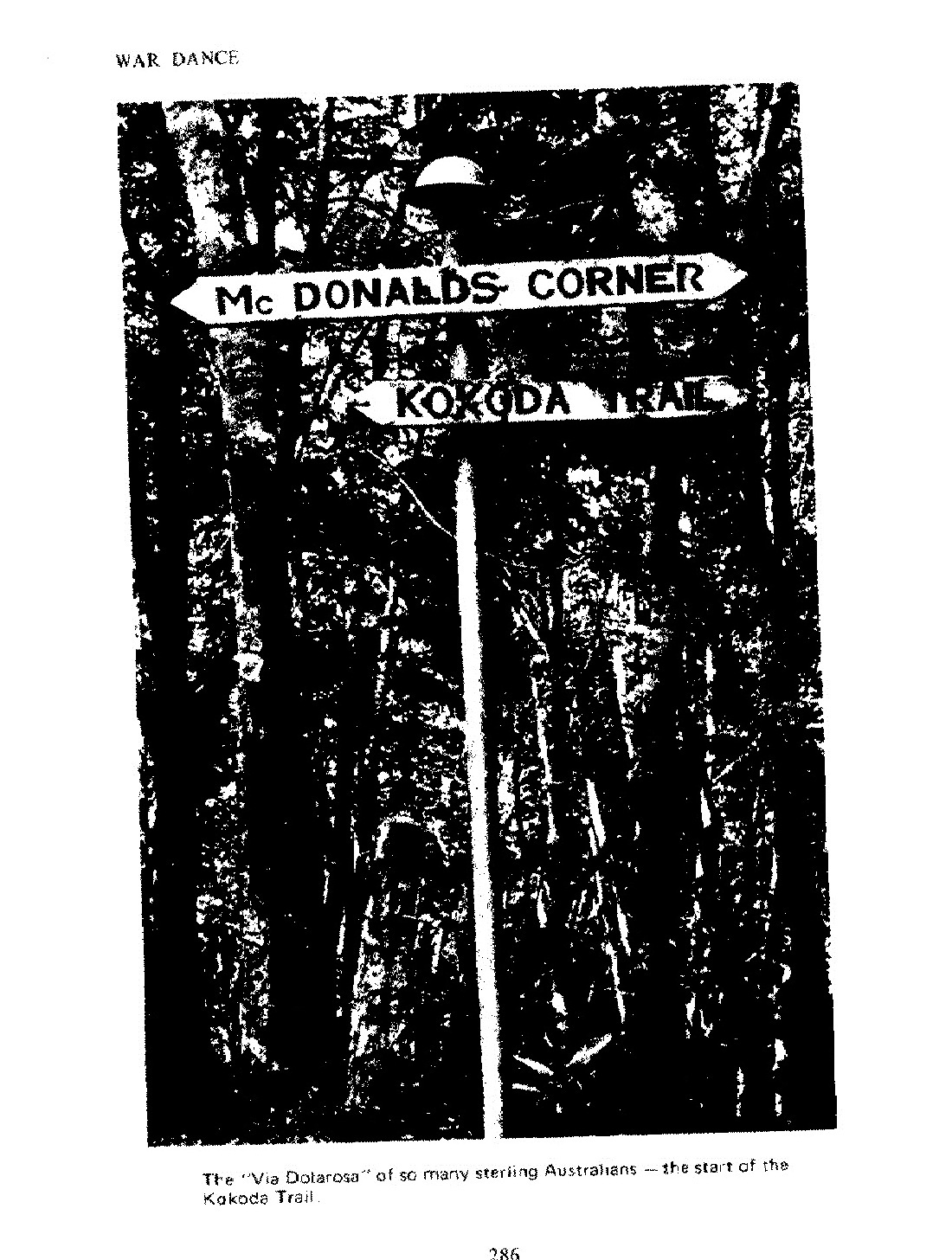
Sign at McDonald's Corner: 1942
.jpg)
PNG Department of Lands Sign at Kokoda 1991
PNG Department of Lands Sign at Kokoda 1991
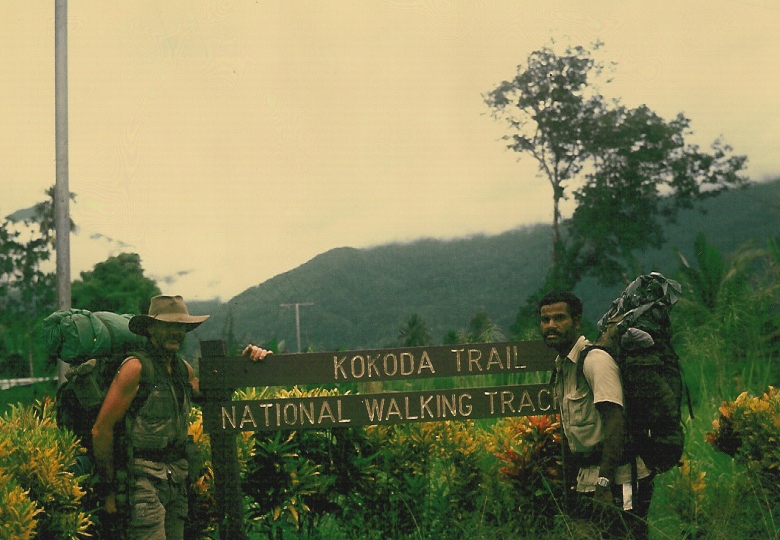
PNG Department of Lands Sign at Kokoda 1991
.bmp)
PNG Department of Lands Sign at Kokoda 1993
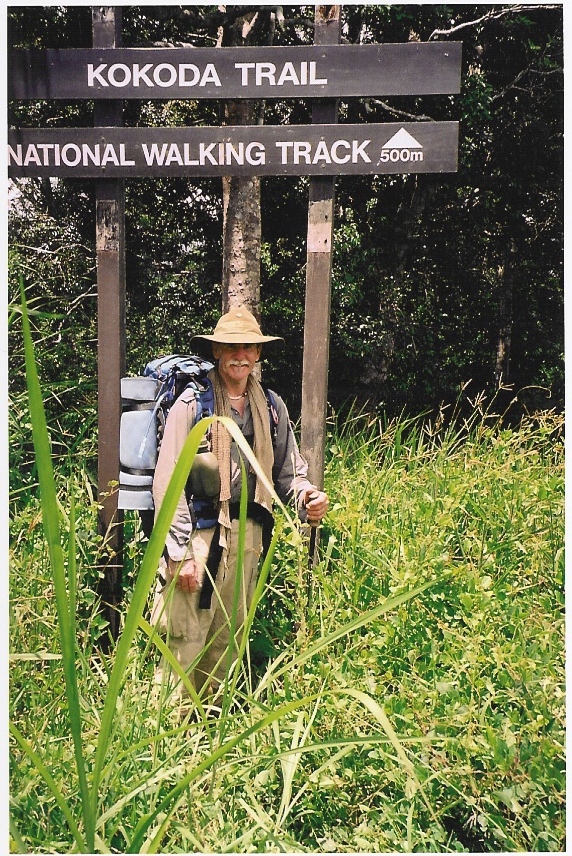
PNG Department of Lands Sign at Owers Corner 2004
WW1 Remembrance Trail on the Western Front[25]
In 2009 the Department of Veterans Affairs was allocated $10 million to develop a Remembrance Trail on the Western Front in France and Belgium for the Centenary of Anzac commemoration period.
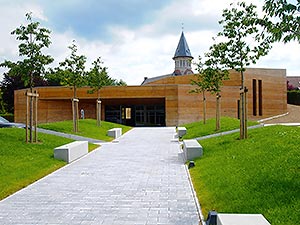
 The use of the word ‘trail’ in this context creates an interesting paradox for both the Department and the commentariat. There was not a whimper about the ‘Americanisation’ of our WW1 battlefields in France and Belgium. Why did DVA use ‘trail ‘when they could have just as easily used ‘track’ to identify it as Australian? And why did the commentariat not try to mobilise public opinion against that ‘American’ word that does not reflect their interpretation of the ‘language of the Australian bush’?
The use of the word ‘trail’ in this context creates an interesting paradox for both the Department and the commentariat. There was not a whimper about the ‘Americanisation’ of our WW1 battlefields in France and Belgium. Why did DVA use ‘trail ‘when they could have just as easily used ‘track’ to identify it as Australian? And why did the commentariat not try to mobilise public opinion against that ‘American’ word that does not reflect their interpretation of the ‘language of the Australian bush’?
The decision makes a mockery of their refusal to acknowledge the official name of the Kokoda Trail in Papua New Guinea.
Conclusion
It is not surprising that there were so many variations amongst troops and war correspondents in the terms describing the track/trail/path/dala/front/road between Owers Corner and Kokoda because it didn’t have a name. However the four books produced in the 1940s (Jungle Warfare, Khaki and Green, Green Armour, the Coastwatchers and History of the 2/14th Battalion) indicate that ‘Kokoda Trail was the adopted term well before the Battles Nomenclature Committee was established. It is therefore easy to understand why the committee adopted the name ‘Kokoda Trail’ for the battle honour.
Subsequent to the awarding of the battle honour ‘Kokoda Trail’ more history books were produced on the Kokoda campaign in the lead-up to self-government in Papua New Guinea. These include the Encyclopaedia of Papua and New Guinea, Blamey, Retreat from Kokoda, a Thousand Men at War, The Brown and Blue Diamond at War and South-West Pacific. All refer to the Kokoda Trail which would have influenced the deliberations of the Papua New Guinea Place Names Committee in choosing ‘Kokoda Trail’ as the official geographic name.
The name ‘Kokoda Trail’ is now officially recognised by:
- The Government of Papua New Guinea
- The RSL of Australia[26]
- The Australian War Memorial Second World War Galleries
It is not recognised by DVA or Department of Environment - post 1992 - who stubbornly refuse to accept the decision of the Australian Battles Nomenclature Committee or the traditional owners of the land, the Papua New Guinea Government.
Their decision to now use the politically correct term ‘Kokoda Track’ in preference to the official name ‘Kokoda Trail’ is a patronising breach of international protocol towards Papua New Guinea - our closest neighbour, former mandated territory, fellow Commonwealth member and wartime ally.
It is also highly discriminatory against them. If it is OK for the Australian Government to use ‘trail’ in France and Belgium then surely it should be OK to use it in Papua New Guinea – after all they do own the land!
Recommendation
The Australian Government should now put up or shut up. If they don’t like the name ‘Kokoda Trail’ they should:
- make a submission to the PNG Government to have them change their gazetted name ‘Kokoda Trail’ to Australia’s politically correct version;
- reconvene a Battles Nomenclature Committee to redefine the battle honour from ‘Kokoda Trail’ to ‘Kokoda Track’ or
- change the name of the WW1 ‘Remembrance Trail’ in France and Belgium to ‘Remembrance Track’ .
Until then they should respect the battle honour ‘Kokoda Trail’ and PNGs sovereign right to name their own geographic features.
Em Tasol
Charlie Lynn OL
[1] ‘Track’ or ‘Trail’? The Kokoda Debate. Peter Provis. Australian War Memorial. 27 July 2009
[2] Looking Forward Looking Back: Customs and Traditions of the Australian Army. Christopher Jobson. Big Sky Publishing. 2009. P 50
[3] Ibid P.50
[4] Australian War Memorial Website https://www.awm.gov.au
[5] Australian War Memorial – Blog Article – The Kokoda ‘Track or Trail’? Karl James. 27 July 2009. P 4
[6] Ibid. P. 4
[7] RSL National Congress Resolution 6.1.2 refers
[8] DVA website: https://anzacportal.dva.gov.au/wars-and-missions/kokoda-track-1942-1943/kokoda-track
[9] Ibid
[10] Ibid
[11] Retreat from Kokoda. Raymond Paull. Heinemann Publishers. 1953. Forward P. xv
[12] The Architect of Kokoda. Robyn Kienzle. Hachette Australia. 2011 P
[13] Dept of Veterans Affairs Website: https://www.awm.gov.au/encyclopedia/kokoda
[14] Department of Veterans Affairs letter to Charlie Lyn (sic) dated 23 February 2011 advising why they would not use the official title ‘Kokoda Trail.
[15] Kokoda Spirit. Patrick Lindsay. Hardie Grant Books. 2009. P. 243
[16] Peter Ryan’s Fear Drive My Feet remains Australia’s finest war memoir. The Australian. 27 June 2015
[17] Handbook of Papua and New Guinea. Sydney and Melbourne Publishing, 1954. P103
[18] PNG Fact Book. Jackson Rannells and Elesallah Matatier. Oxford University Press. 1990. P. 260
[19] Stuart Hawthorne, ‘The Kokoda Trail – A History’ Central Queensland University Press, 2003
[20] These books are from my own library - according to Australian War Memorial historian, Garth Pratten, there are many more.
[21] Khaki and Green. Halstead Press. Published in 1943. P157
[22] Jungle Warfare. Australian War Memorial Canberra. 1944 P.70
[23] The Coastwatchers by Eric Feldt. The Oxford University Press. P190
[24] Greyflower Productions 1965 P. 177
[25] Department of Veterans Affairs Website http://www.dva.gov.au/commemorations-memorials-and-war-graves/memorials/australian-remembrance-trail-along-western-front
National Library of Australia: Is It Kokoda Trail or Kokoda Track
Kokoda Day
The day they raised the Australian flag at Kokoda
Australia was unprepared for the war in the Pacific in 1942. Our faith in ‘great and powerful friends’ coming to our aid in the event of Japan entering the war was shattered with the sinking of HMAS Prince of Wales and HMAS Repulse near Singapore on 10 December 1941 and the secret deal struck by UK Prime Minister Winston Churchill and American President Franklin Roosevelt for American aid to be directed to the European theatre of operations at the expense of the South West Pacific.
The defence of Australia and its mandated territory of New Guinea was dependent on untrained militia forces and a small band of New Guinea Rifles as our experienced AIF units were returning from Europe to meet the new threat.
Resources were so scarce in New Guinea that young males were forcibly recruited to support the war effort. Many of these men from remote mountain villagers had no idea of the war and were conscripted against their will. They were told that men from Japan were the enemy. For many of these men other villagers living in remote tribal lands were also considered ‘enemy’. One can only imagine the fear and uncertainty they felt as they were forcibly marched away from their families and clans.
They were designated as Carriers but were to become known as ‘fuzzy-wuzzy angels’ because of their selfless sacrifice in assisting wounded and sick diggers during the various campaigns.
They carried vital war supplies on their bare shoulders in endless lines over hostile and inhospitable terrain. Modern day trekkers are in awe of their efforts. Without this vital link in the chain of our war effort Japan would have been successful in the conquest of New Guinea.
Today, 71 years after the Pacific War, they are the only link in the chain not to have received any official recognition. Many claim they were not properly paid. None were ever issued with a medal. No day has been set aside to commemorate their service or sacrifice.
It is difficult to understand why successive Australian governments have ignored this important omission.
The recent upsurge in interest in the Kokoda campaign by Australian trekkers indicates there is a strong desire for our wartime links with Papua New Guinea to be recognised. This can be achieved by providing them with an incentive to visit, or revisit the country.
The proclamation of a ‘Kokoda Day’ dedicated to the wartime carriers would provide this incentive.
This paper recommends that November 3rd be officially proclaimed as a day of commemoration for the carriers. This is the day the Australian flag was raised at Kokoda – a ceremony that would never have been possible without the support of the New Guinea Wartime Carriers.
An earlier proposal was approved by the PNG Government National Executive Council however the name was changed to ‘Fuzzy-Wuzzy Angel Day’ in the process. This decision defeated the purpose of the announcement as most Australians do not know anything about ‘fuzzy-wuzzy angels’ until they have visited Papua New Guinea.
In marketing terms the name ‘Kokoda’ is priceless whereas the term ‘fuzzy-wuzzy angel’ only has emotional appeal to those who have already trekked.
Objective
To seek the support of the National Executive Council to proclaim 3rd November as ‘Kokoda Day’ to commemorate the service and sacrifice of the Papua New Guinea wartime carriers.
Background
The PNG Carriers who supported Australian troops during the Pacific have never been properly recognized. Some were never paid and none ever received a medal for their service.
According to our official history of the war in the Pacific by Dudley McCarthy (Australia in the War 1939-1945, p116) the Australian New Guinea Army Unit (ANGAU) was authorised by the Australian government to provide for:
‘the conscription of whatever native labour might be required by the Services..’
Rates of pay were to be determined and the Senior Military Officer or District Officer was empowered:
‘to have the natives so employed to enter into a contract with the Australian Government.’
It has been estimated that some 10,000 PNG nationals served as Carriers in support of the Australians during the Kokoda campaign in 1942.
A further 42,000 are estimated to have been indentured to support Australian troops in the Milne Bay and the Buna/Gona campaigns. They were paid 10 shillings per month.
According to wartime journalist, Osmar White[i]:
‘ANGAU contrived a maximum mobilization and use of native labour. At the critical period, its method of conscription was even more arbitrary than German recruiting in the early days. In some villages every able-bodied male over the approximate age of sixteen years was rounded up, transported to the clearing centres, and thence drafted to whatever type of work had priority in the immediate emergency. Brutal disciplinary measures had often to be taken in the field; but when the first and worst crises of invasion were surmounted, ANGAU did what ti could to conserve the life and health of its native levies and to maintain the viability of native communities depleted of 40 or 50 per cent of their able-bodied men. Under military rule, the labourers’ health was more carefully considered and their diet in general better than under private employers before the war. ANGAU was fully aware of the value of native labour and co-operation to the Allied effort.
What is not understood by many is that male villagers indentured for work as Carriers faced two potential enemies – the invading Japanese and traditional clans whose customary land was foreign to them.
During the period 1944 to 1957 approximately 2 million pounds was paid by the Australian Government in compensation for property damage to PNG nationals by the Australian Government. In 1975 PNG gained independence and the PNG Government assumed all legal obligations for compensation of its veteran community.
Unfortunately the PNG Carriers were excluded from benefits under legislation for compensation of PNG nationals who served in the Defence Force. In 1980 they were also deemed to be ineligible for the PNG War Gratuity Scheme for ex-Servicemen.
In 1981 the Australian Government paid $3.25 million to the PNG Government under the Defence (PNG) Retirement Act as a final payment for compensation for Carriers. In 1986 the PNG Government introduced payments of PNGK1,000 for each surviving Carrier. The payments ceased in 1989 and many Carriers claim to have not received any money.
During the 50th anniversary of the Kokoda campaign the issue of payment and compensation for many of the Carriers who claim they were never paid was raised with the Keating Government.
On 21 April 1992 The Australian newspaper reported that returned servicemen in PNG had called on the Australian Government to pay hundreds of local war veterans who helped Australian troops during the Kokoda campaign. According to the report:
“The President of the PNG Returned Services League, Mr Wally Lussick, said Australia had sent about $3.5 million to PNG to help compensate local war veterans in the early 1980s, but much of the money had gone to the wrong people and a large group of carriers missed out.
“Mr Lussick said much of the money went to those press-ganged into being carriers for the Japanese and many people who took no part in the war received payments.
“The visit to PNG later this week by the Prime Minister, Mr Keating, for Anzac Day services to mark the 50th anniversary of the Kokoda battles would provide a good opportunity for Australia to make a commitment to the surviving carriers, he said.”
In the PNG Post-Courier of 24 April 1992, the Prime Minister of PNG, Sir Rabbie Namaliu called on Australia ‘to help compensate WW2 carriers and stretcher bearers”. He raised the issue with Prime Minister Paul Keating at the time. According to the Post-Courier:
“Most of the carriers and ex-servicemen received compensation payments from Australia in the mid-1980s, but many legitimate veterans from the Southern Kokoda Trail near Port Moresby, missed out.
“PNG authorities estimate up to 200 surviving carriers are still waiting for some kind of payment from Australia for their wartime labour and service.
“Mr Namaliu said the Government was considering making an approach to Australia to identify and pay those carriers who have gone unrewarded for half a century.”
On 5 May 1992 the Bulletin with Newsweek reported:
“Keating says compensation cases will be dealt with on their merits and all worthy claims examined; but no concrete sum for individuals has been discussed. The difficulty of maintaining a list of the original carriers is underlined by how few speak English. Family members of dead carriers are calling for posthumous compensation – after all, they took part in a battle that Keating described this week “as more important to Australians than any other battlefield in Europe or Africa.”
Whilst Prime Minister Keating was genuine in his desire to resolve the issue it is clear that his bureaucracy put it in the ‘too hard basket’ at the time.
The argument that ‘it would be inappropriate for the Australian Government to consider taking any further action on this matter in the absence of a detailed proposal from the Papua New Guinea Government’ was a cop-out.
The increasing numbers of Australians trekking Kokoda (Federal and State politicians, prominent media personalities, successful business people and a number of private schools)- and reconnecting with the ‘sons of the fuzzy-wuzzy angels’ will be enthusiastic supporters of a day dedicated to their memory.
Remembrance Day – Papua New Guinea
Remembrance Day commemorates Papua New Guinean servicemen who sacrificed their lives in World War 11 and Bougainville. It occurs on 23 July which commemorates the day in 1942 when the Papuan Infantry Battalion first fought against Japanese soldiers near the Kumusi River in Oro Province. Remembrance Day is a public holiday.
In 2008 Governor-General Paulias Matane paid tribute to these soldiers and added:
"Also we must remember those who provided intelligence reports, coastwatchers and the fuzzy wuzzy angels. All these fallen heroes contributed in a significant way to the strategic defence of our land then and today."
Kokoda Day
Whilst Remembrance Day commemorates the service of uniformed Papua New Guinean servicemen who served, and those who sacrificed their lives in action during the Pacific War and the Bougainville crisis, Kokoda Day would be dedicated to the service of the Wartime Carriers.
Kokoda Day would not be a national holiday. It would be a day of commemoration which could include:
- a morning service in schools (thus providing an opportunity to educate Papua New Guinean students on the achievements and sacrifices of their grandfathers);
- a flag raising re-enactment at Kokoda; and
- a service at Remembrance Park in Port Moresby.
Why 3 November?
The Kokoda campaign began with a full scale attack on the Australian 39th Militia Battalion on 29 July 1942. The campaign lasted three months as the Australians were pushed back to last line of defence on Imita Ridge. The Australians rallied at this point and pushed the Japanese back across the track. Kokoda was recaptured on 2nd November 1942 and the Australian flag was raised at a service the following day.
The flag raising ceremony symbolised the turning of the tide in the Pacific War. It also symbolises the service and sacrifice made by Carriers in all campaigns throughout PNG.
This victory would not have been possible without the vital support of the PNG Carriers across the track. In addition to their contribution to the war effort hundreds of Australian soldiers owe their lives to the selfless sacrifice of the Carriers who guided and carried them to safety over inhospitable jungle terrain in the most adverse of circumstances.
Tourism Benefits for Kokoda (Oro Province)
The proclamation of Kokoda Day would provide an incentive for Australians to travel to Papua New Guinea for the commemoration services.
Following is a monthly comparison of Australians trekking Kokoda in July and November since 2008:
|
YEAR |
JULY |
AUGUST |
SEPTEMBER |
OCTOBER |
NOVEMBER |
|
2008 |
1368 |
802 |
765 |
412 |
83 |
|
2009 |
1017 |
507 |
733 |
305 |
107 |
|
2010 |
662 |
450 |
509 |
310 |
103 |
|
2011 |
671 |
356 |
354 |
339 |
128 |
|
2012 |
770 |
532 |
631 |
480 |
176 |
The proclamation would effectively extend the trekking season into November by providing an incentive for Australians to visit PNG. There are many Australians who are not physically able to trek Kokoda however they would visit the village if there was a strong reason for them to do so.
Commemorative activities would not be limited to a single day in Kokoda. It could include short treks up to the Isurava Memorial, across to Abuari and down the Eastern side of the range which was defended by the 53rd Militia Battalion. It would also provide them with an opportunity to extend their stay and visit Tufi Resort and the beachheads at Buna and Gona thus bringing increased tourism benefits to this region.
In addition to the re-enactment of the raising of the flag Kokoda Day would provide an opportunity for local clans to showcase their Orokaiva culture with sing-sings, traditional dances, markets and craft displays.
In Port Moresby a service could be held at Remembrance Park in the morning and a beating of the retreat at Bomana War Cemetery in the evening.
Digger Tributes to PNG Wartime Carriers
In a report on the medical aspects of the fighting withdrawal in the face of overwhelming Japanese forces after the Battle for Isurava was lost, Colonel Kingsley Norris, Assistant Director Medical Services with the 7th Division praised the work of the Australian medics. No living casualty, claimed Norris, was abandoned to the enemy and overall 750 wounded and sick were shepherded down the track to safety. Norris was also full of praise for the ‘walking wounded’. They had, in Norris’ words, to be treated with ‘absolute ruthlessness’ and not provided with stretchers:
‘Those alone who were quite unable to struggle or stagger along were carried. There was practically never a complaint nor any resentment … One casualty with a two inch gap in a fractured patella, splintered by a banana leaf, walked for six days …’
Captain ‘Blue Steward, Regimental Officer, 2/16th Battalion:
“… they never forgot their patients, carrying them as gently as they could, avoiding the jolts and jars of the many ups and downs. The last stretcher was carried out by the Regimental Aid Post boys, two volunteers, Padre Fred and myself. Till then we never knew the effort needed, nor fully appreciated the work the carriers were doing. Their bare, splayed feet gave them a better grip than our cleated boots could claim on the slippery rocks and mud.
“Some of the bearers disliked the tight, flat canvas surfaces of the regulation army stretchers, off which a man might slide or be tipped. They felt safer with the deeper beds of their own bush made stretchers – two blankets doubled round two long poles cut from the jungle. Each time we watched them hoist the stretchers from the ground to their shoulders for another stint, we saw their strong leg, arm and back muscles rippling under their glossy black skins. Manly and dignified, they felt proud of their responsibility to the wounded, and rarely faltered. When they laid their charges down for the night they sought level ground on which to build a rough shelter of light poses and leaves. With four men each side of a stretcher, they took it in turns to sleep and to watch, giving each wounded man whatever food, drink or comfort there might be.
Laurie Howson, 39th Battalion:
“The days go on. You are trying to survive, shirt torn, arse out of your pants, whiskers a mile long, hungry and a continuous line of stretchers with wounded carried by ‘Fuzzy-Wuzzies’ doing a marvellous job. Some days you carry your boots because there’s no skin on your feet. But when I look around at some of the others – hell! They look crook! Then I have seen the time when you dig a number of holes in the ground and bury your dead. Nothing would be said, but you think ‘maybe it will be my turn next.”
Conclusion
The Australian army would have been defeated in the Kokoda campaign if they had not received vital logistic support from the New Guinea Wartime Carriers. Hundreds would have died of their wounds and tropical illnesses if they had not been carried off the track.
These wartime Carriers have never been officially recognised. The Australian government specifically excluded them from benefits under legislation for compensation of PNG nationals who served in the Defence Force. In 1980 they were also deemed to be ineligible for the PNG War Gratuity Scheme for ex-Servicemen.
The service of the wartime carriers and the sacrifices they made towards the allied victories in Papua New Guinea should be honoured and enshrined in a special day dedicated to their memory.
The most appropriate day is November 3 as the Australian flag would never have been raised on the Kokoda plateau if it had not been for their service.
Recommendation
‘Kokoda Day’ be proclaimed on 3rd November each year to commemorate the service and sacrifice of the New Guinea Wartime Carriers.
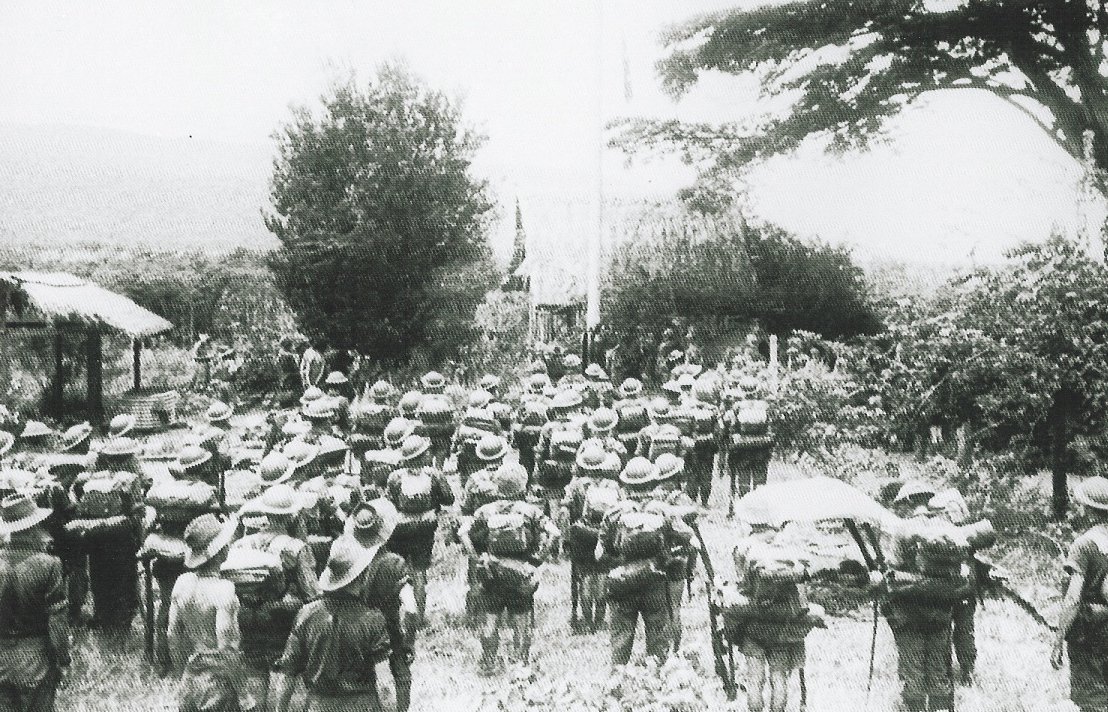 AWM Photo of the raising of the Australian Flag on the Kokoda plateau on 3 November 1942
AWM Photo of the raising of the Australian Flag on the Kokoda plateau on 3 November 1942
Adventure Kokoda has a strict policy of carrying our rubbish off the track. All rubbish is collected by our PNG guides and carriers from our campsites and carried off the track for disposal.
Why Trek with Adventure Kokoda
Our primary goal is to lead you safely across the Kokoda Trail and ensure you have an unforgettable wartime historical and cultural experience.
Charlie has led 101 expeditions across the Kokoda Trail over the past 32 years.
He previously served in the Australian Army for 21 years. During this time he saw active service in Vietnam; was assigned to the joint Australian, New Zealand and British (ANZUK) Force in Singapore/ Malaysia from 1970-72, and as an exchange instructor in Airborne Logistics with the United States Army from 1977-78. He is a graduate of the Army Command and Staff College.
See for yourself!
Tackling the Kokoda Trail is a once-in-a-lifetime experience and, whilst there's nothing like actually being there, you can get a feel for what to expect with some of our videos.
Take a closer look now and see why over 7,500 people have trusted us to bring this historical and cultural journey to life, leading them safely across the trail and ensuring they have an unforgettable experience.
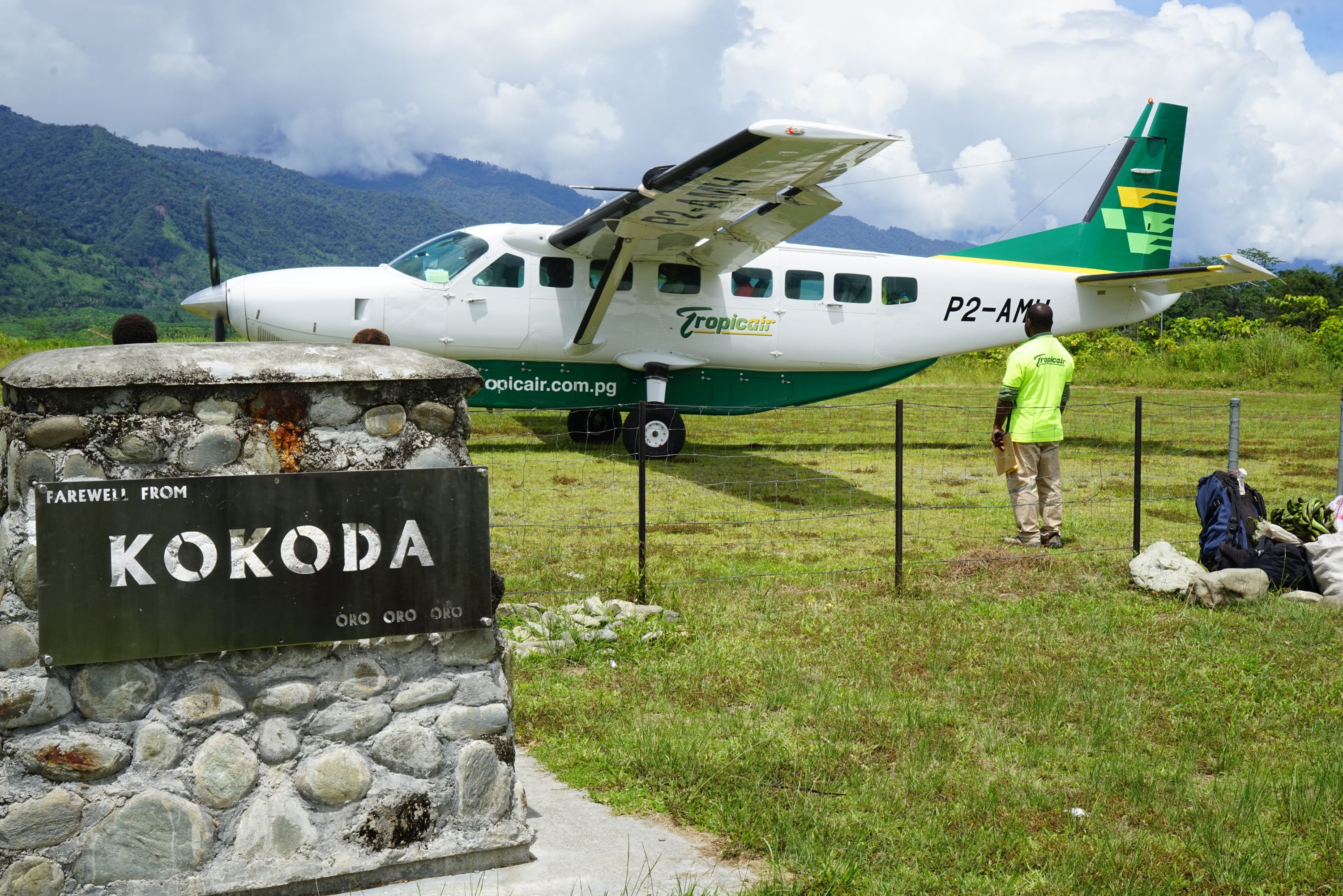
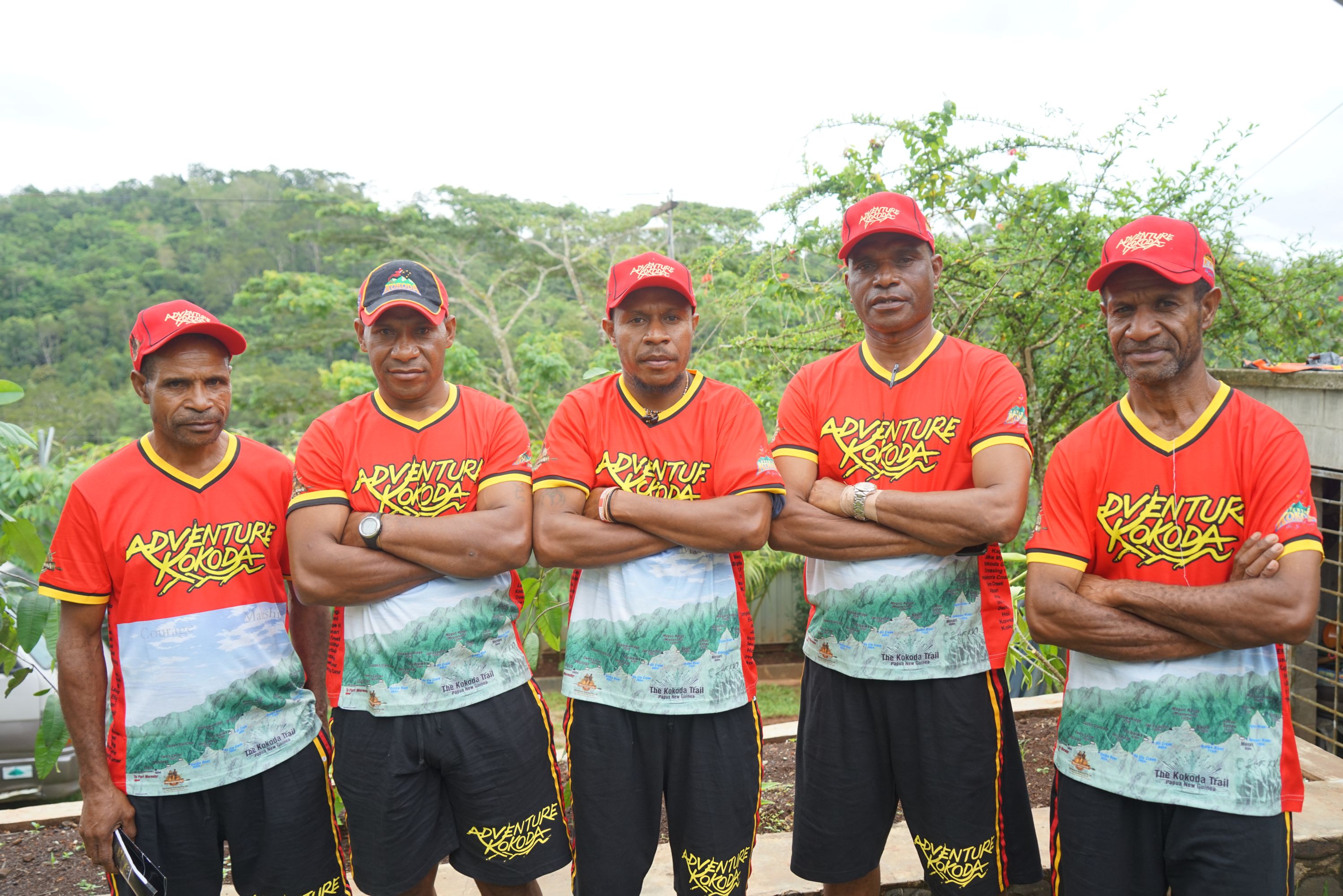
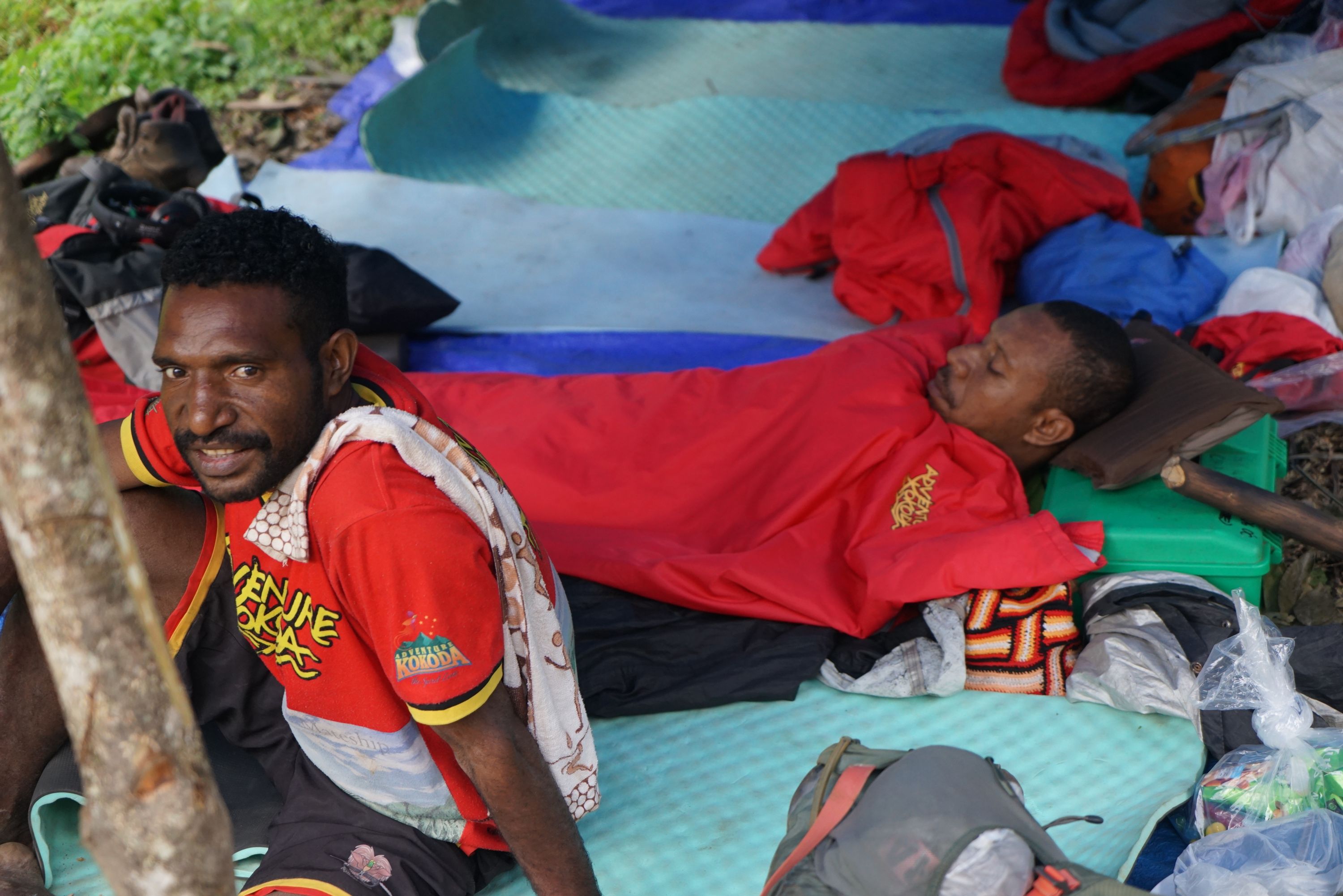
.JPG)
.JPG)
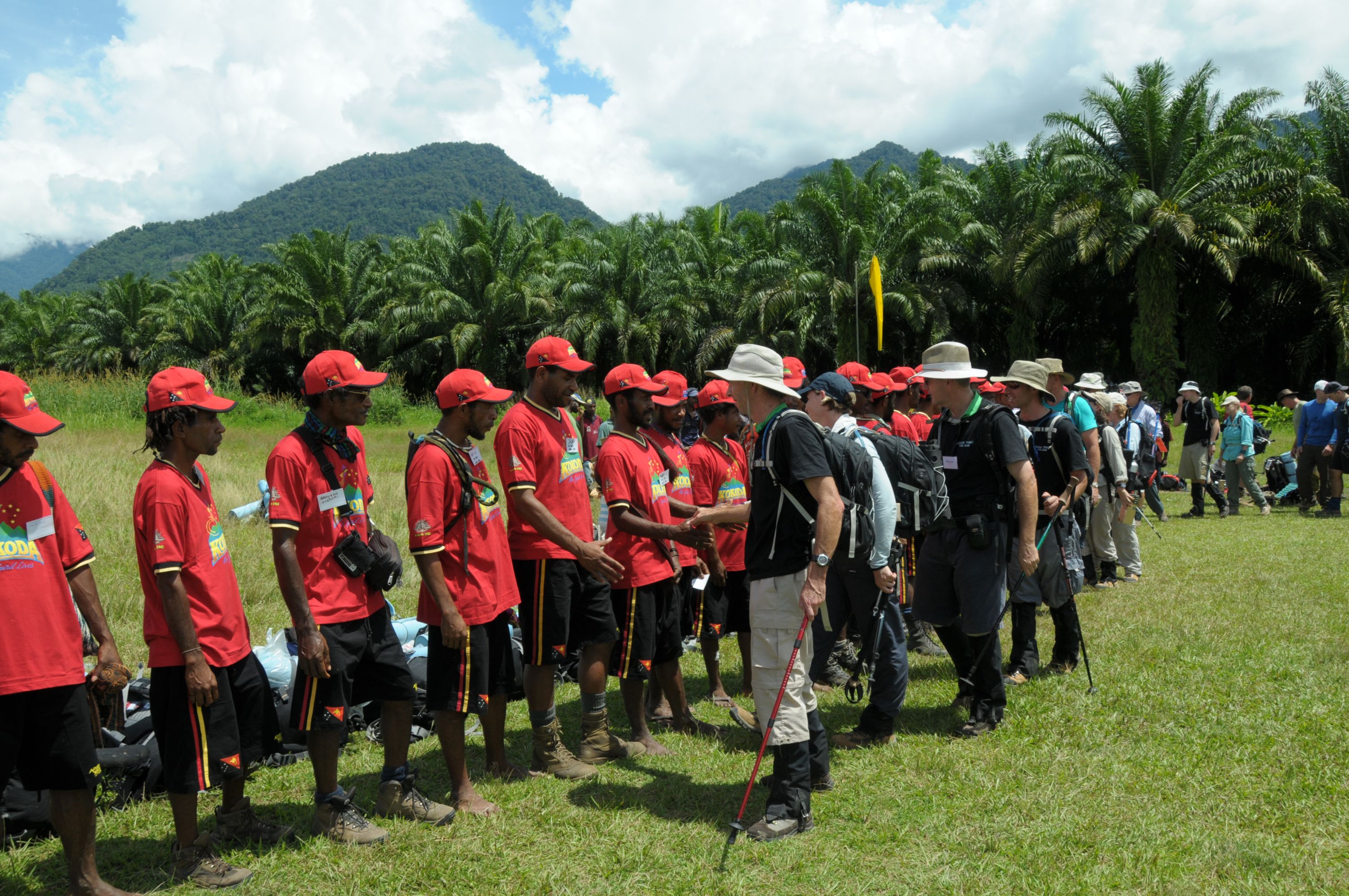
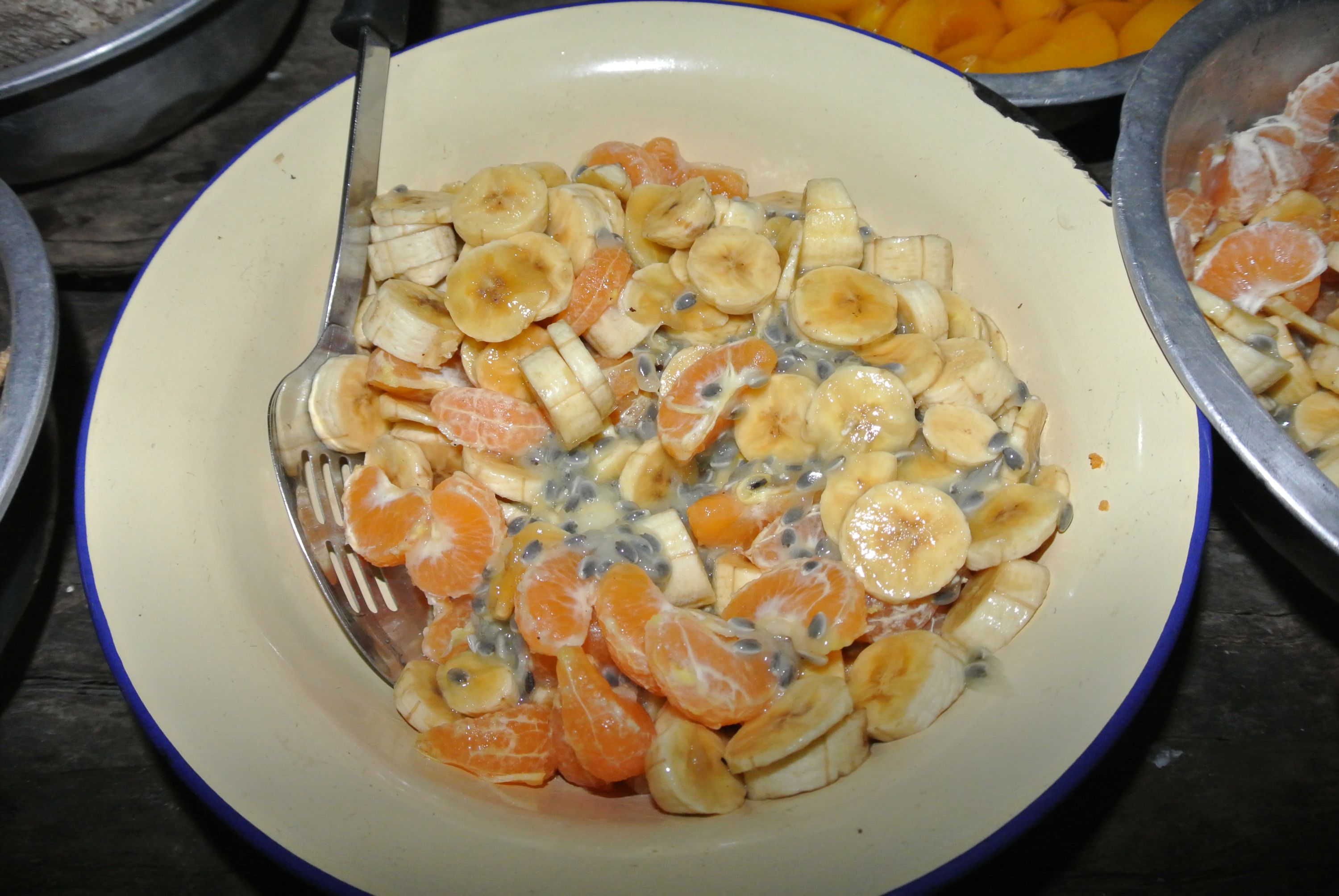
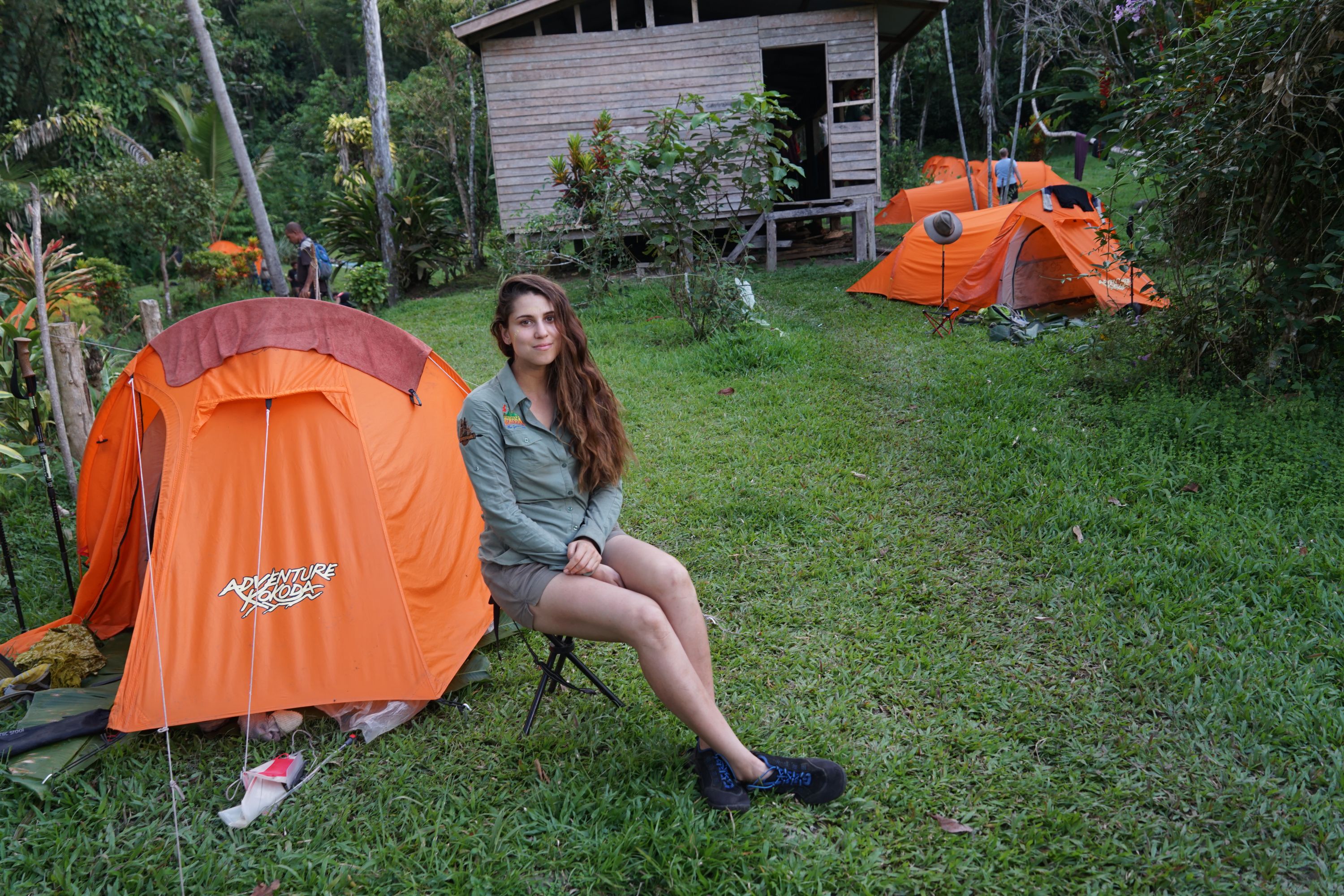
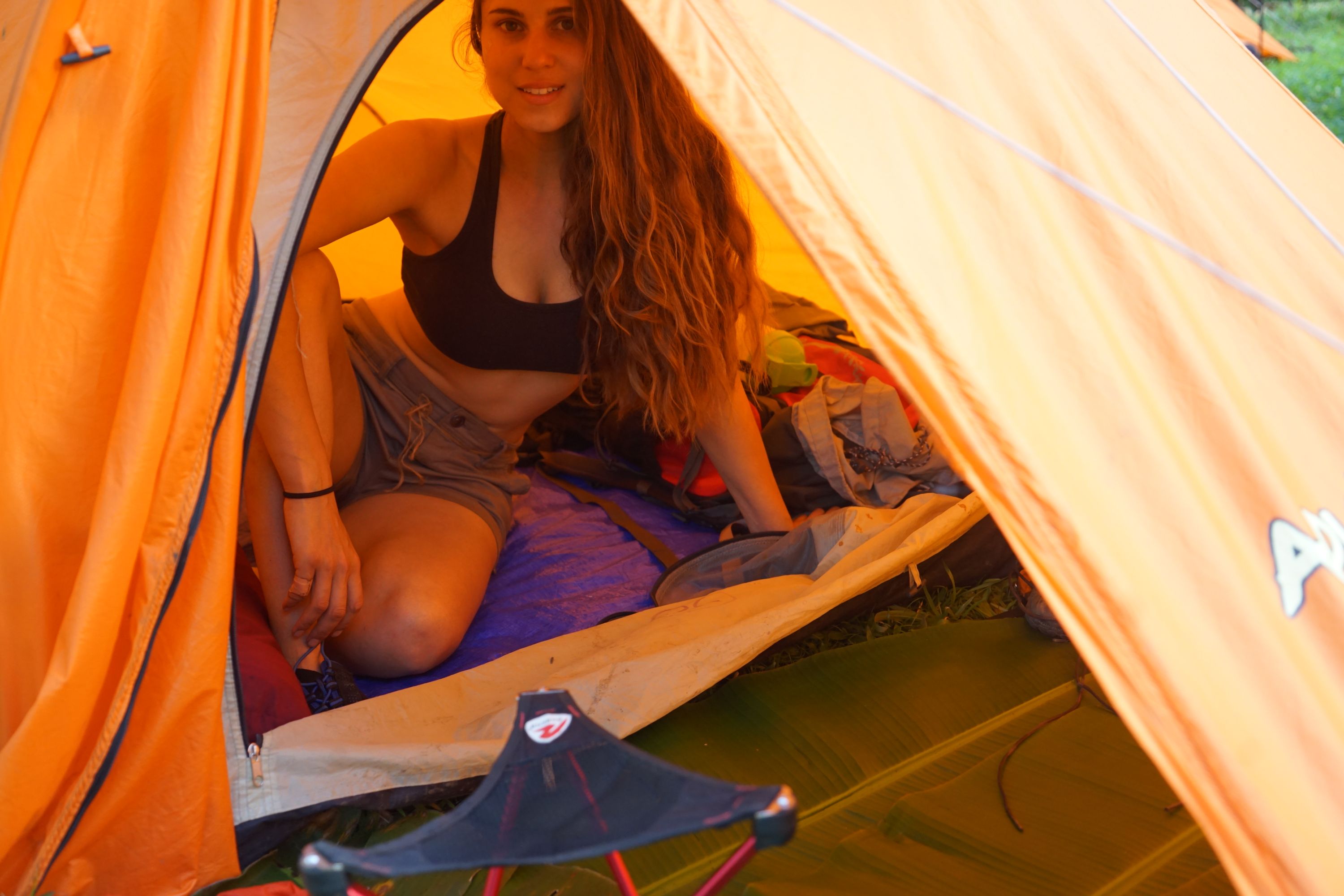
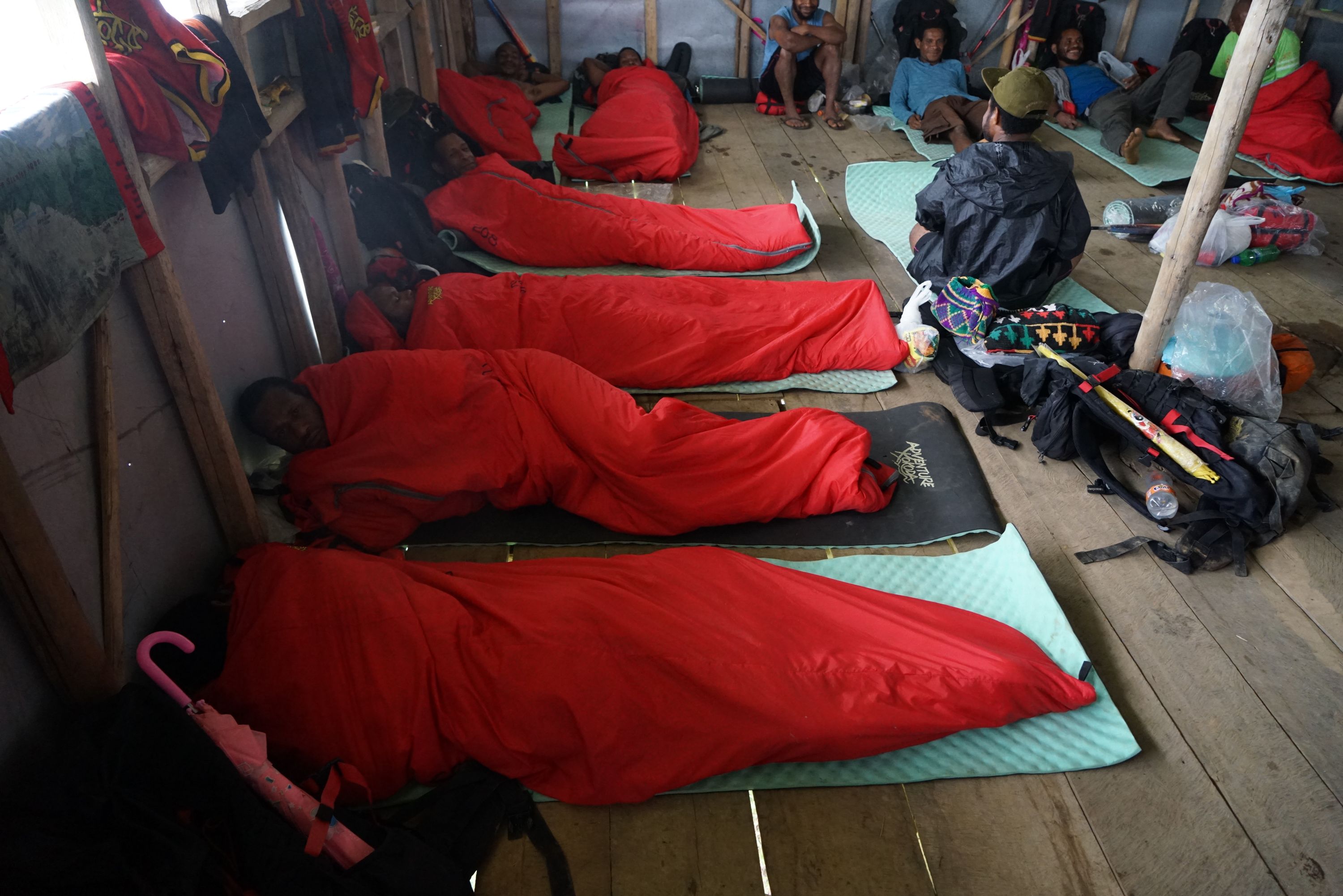
.JPG)
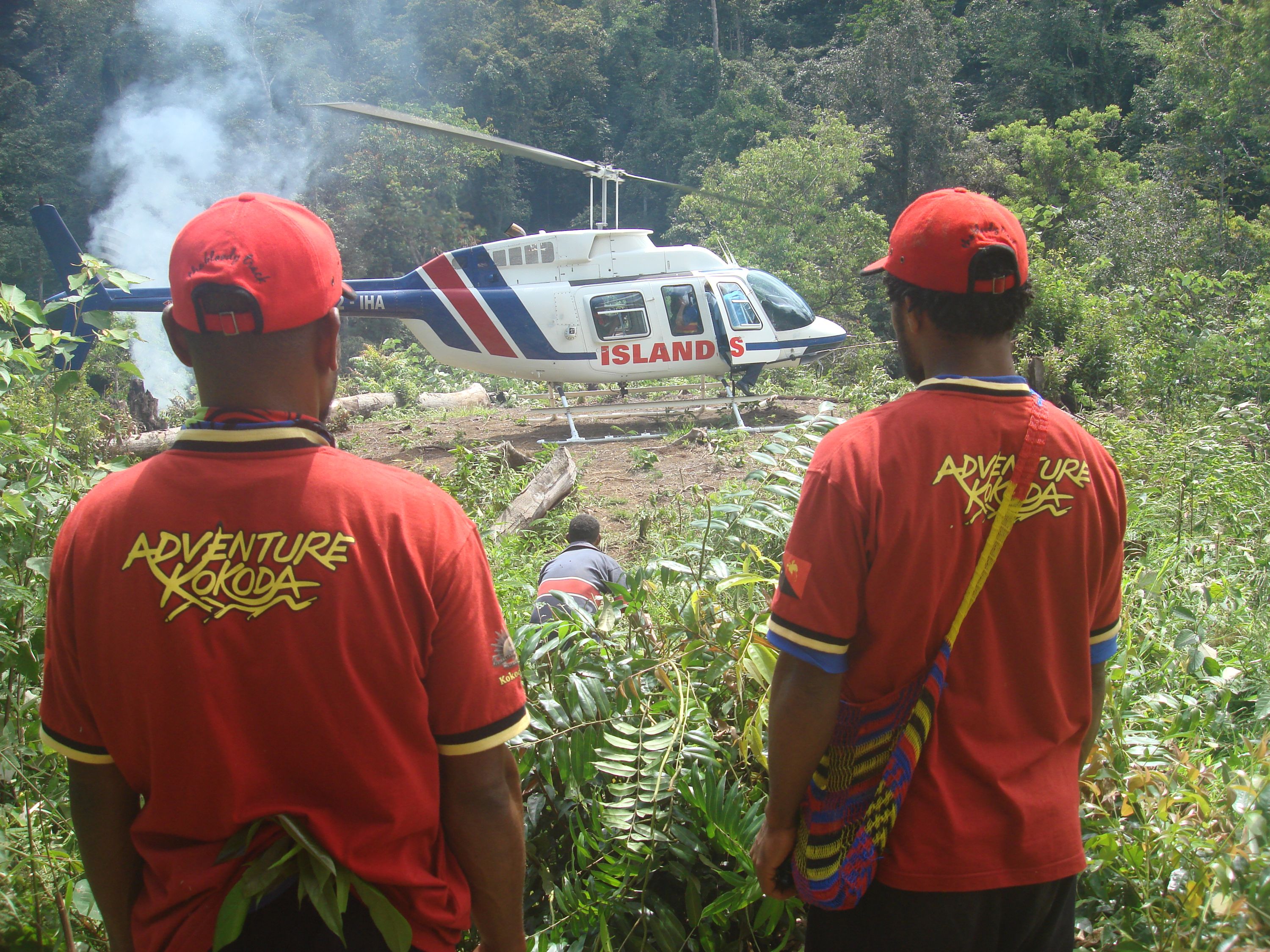
.JPG)
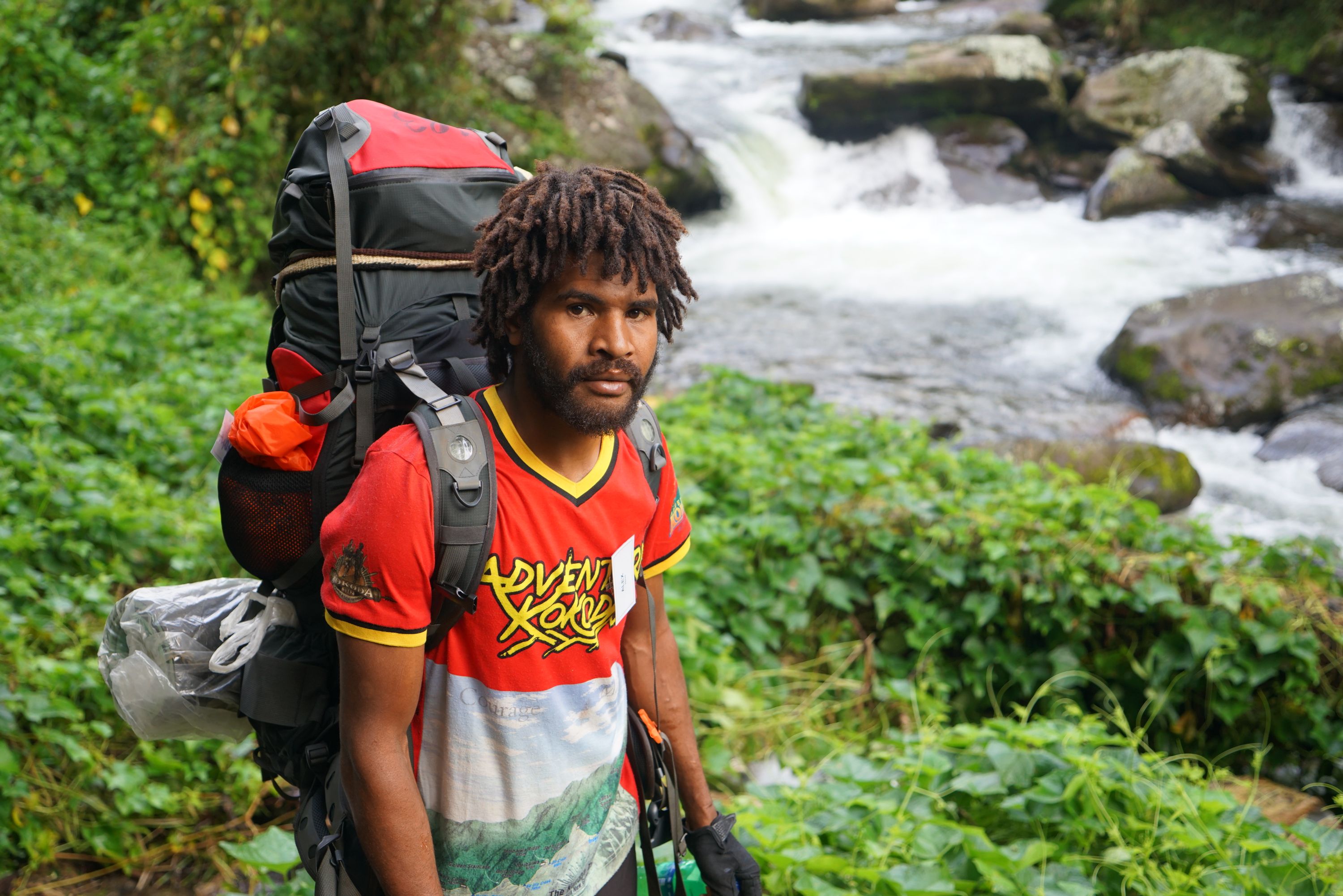
.JPG)
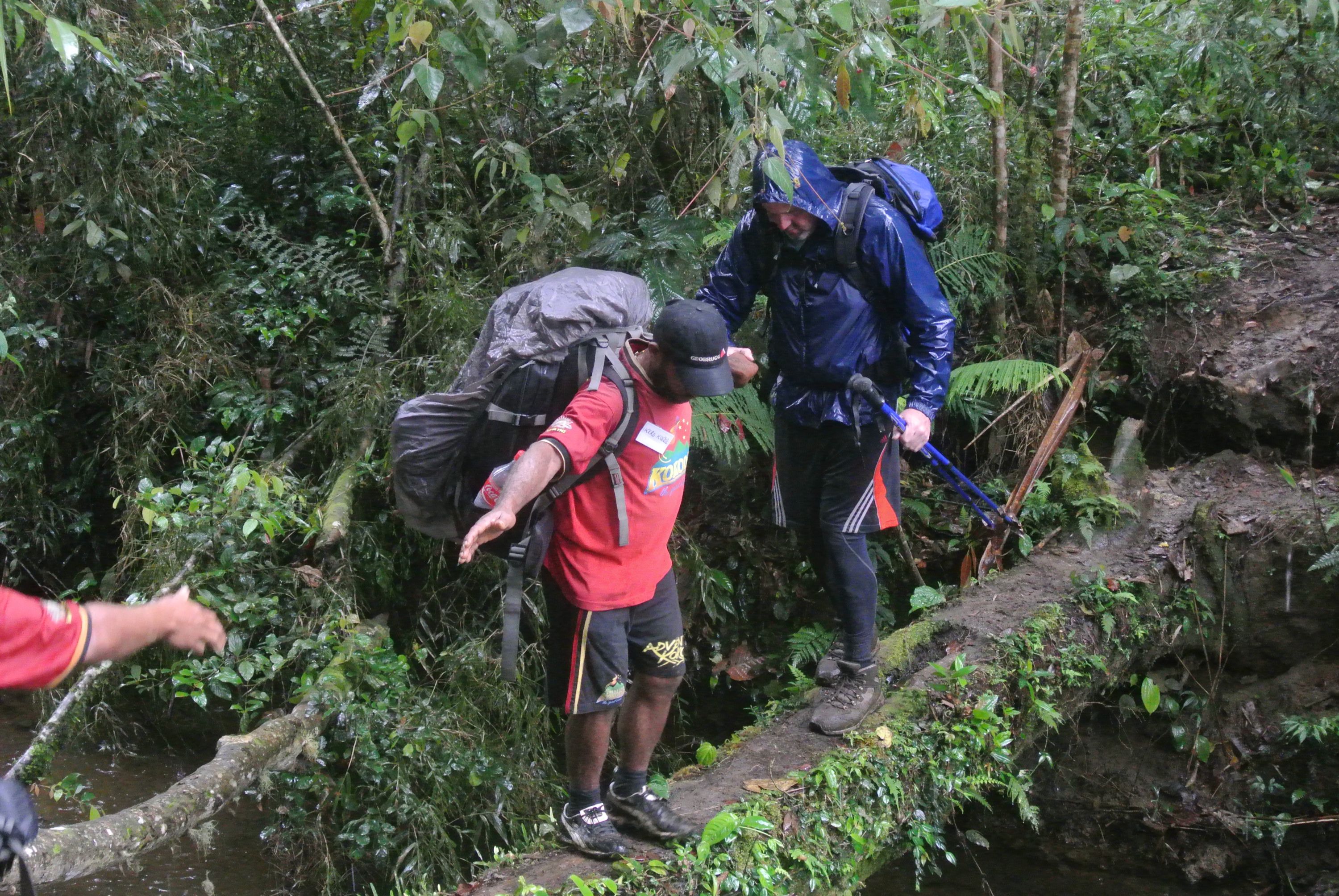
.JPG)
